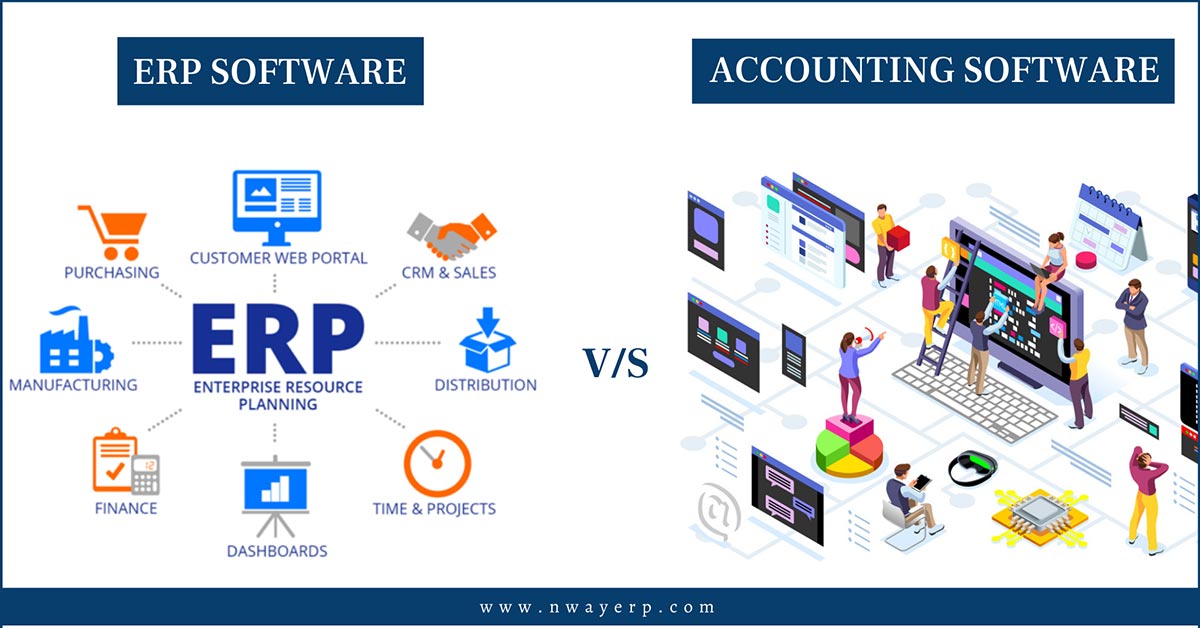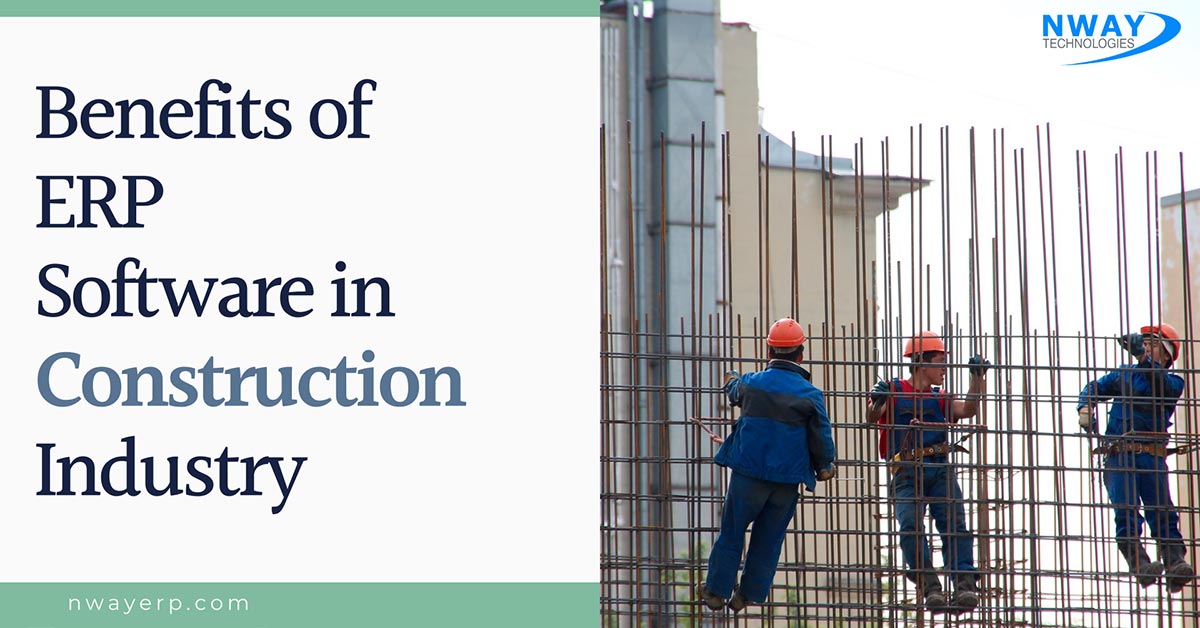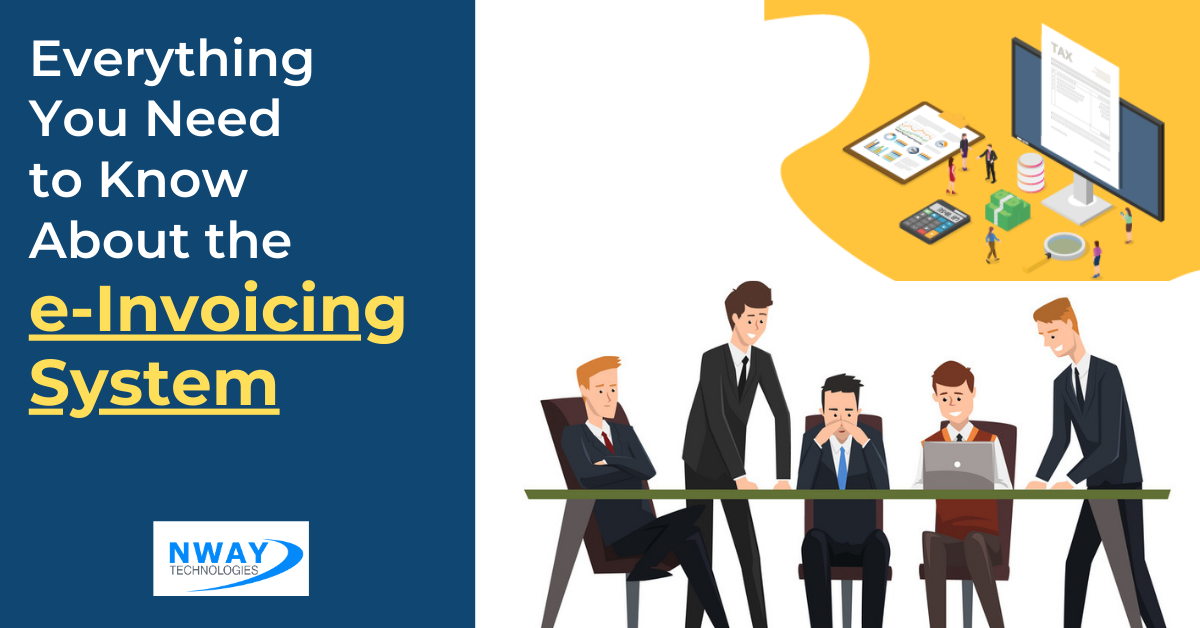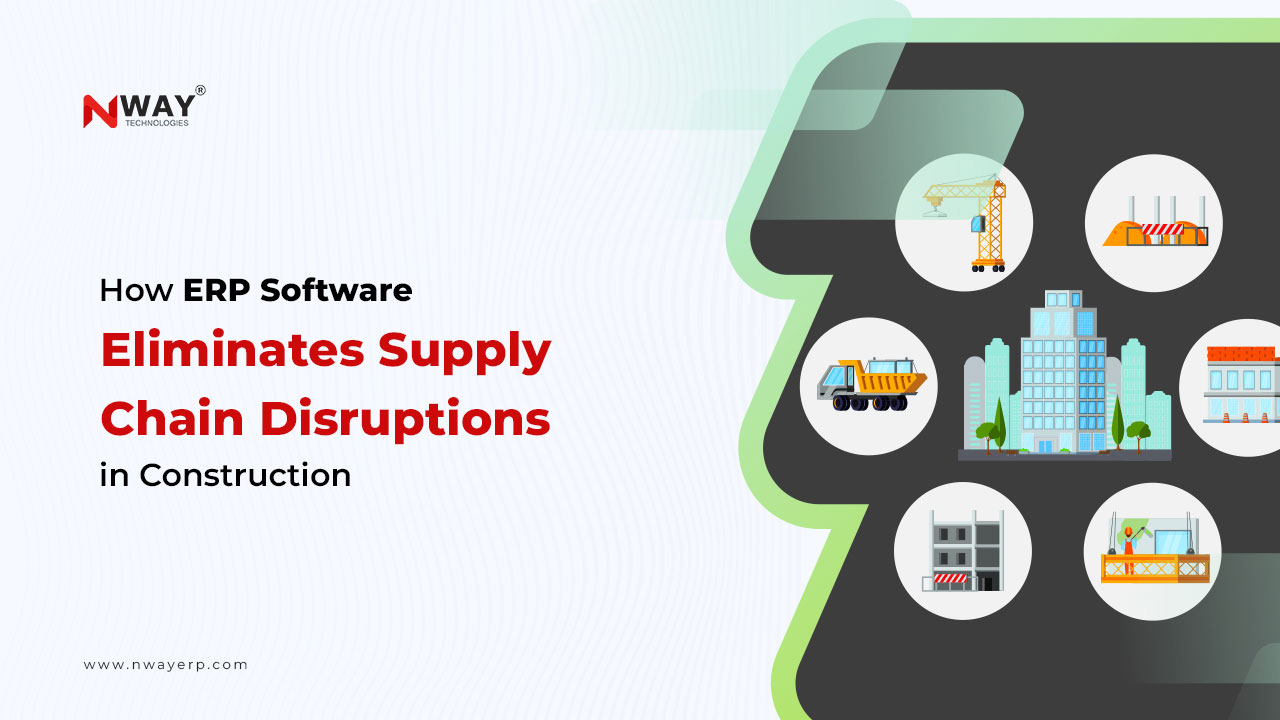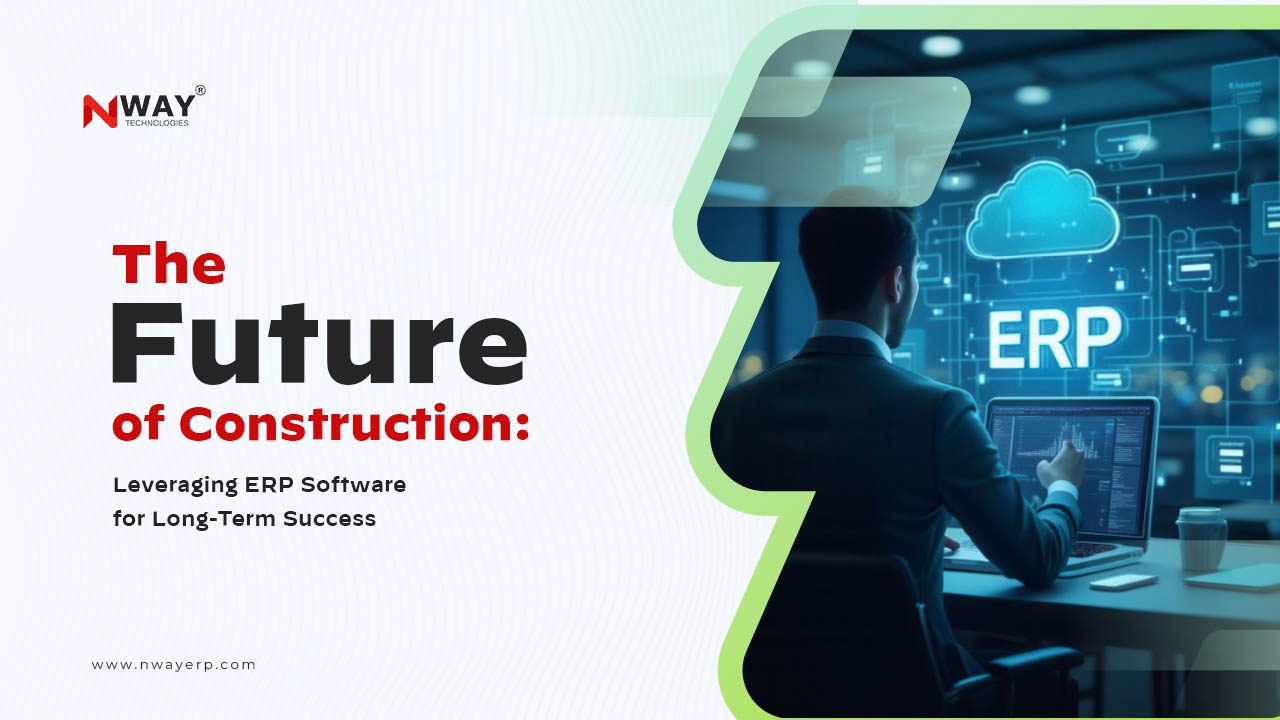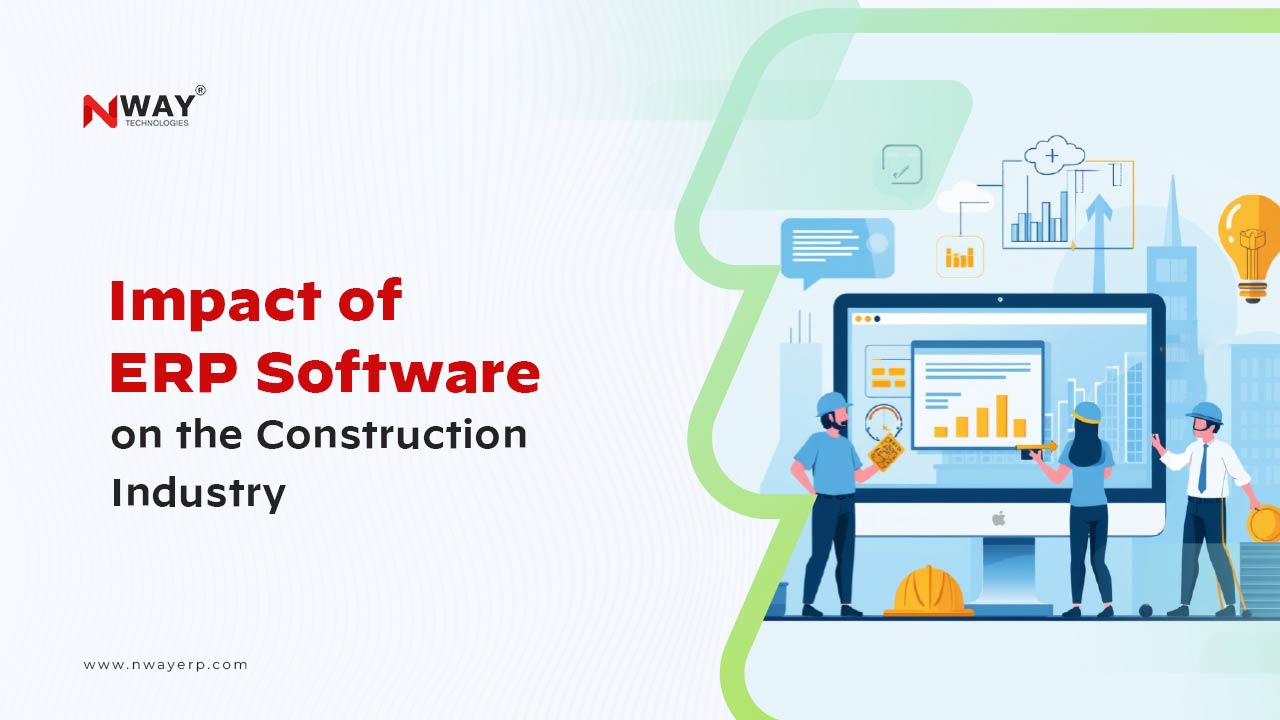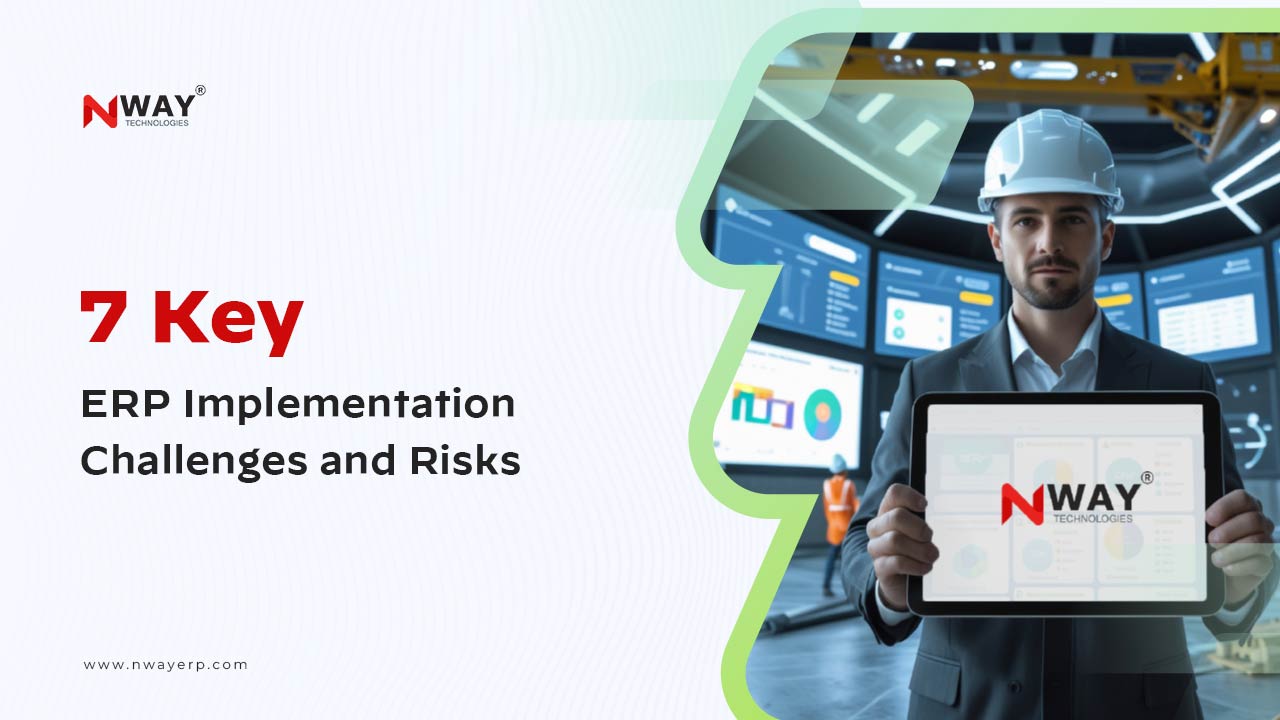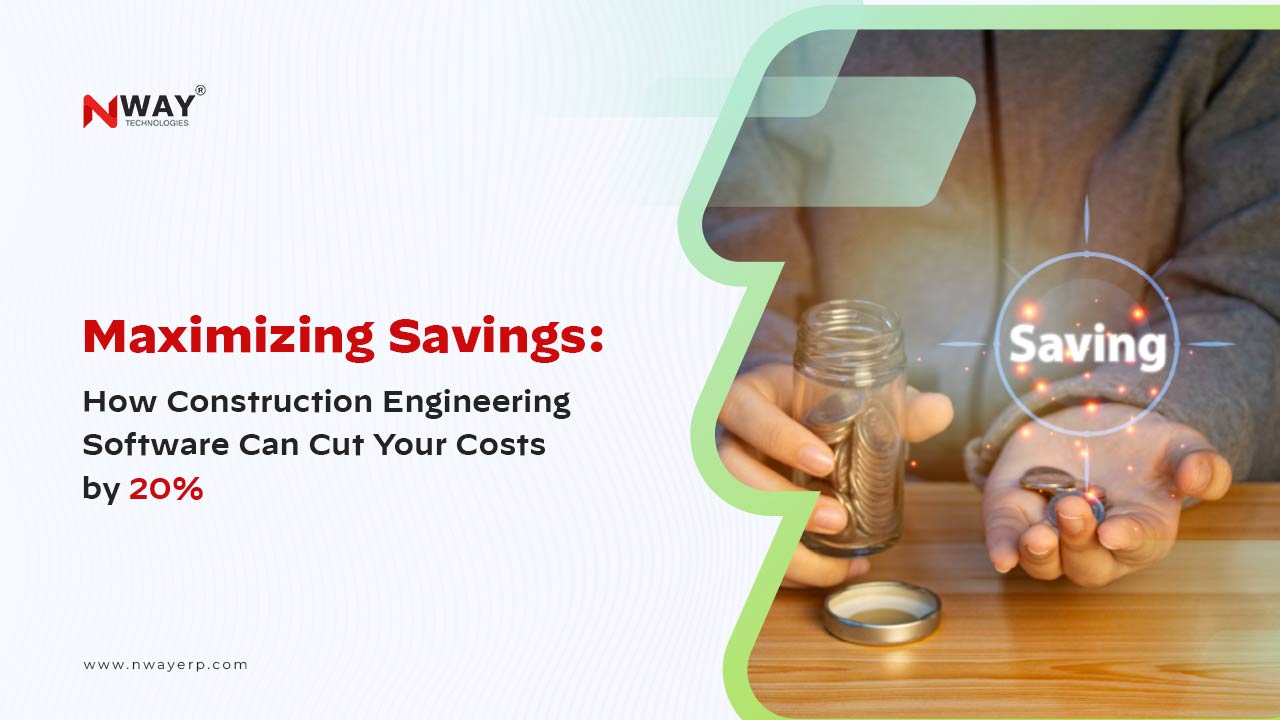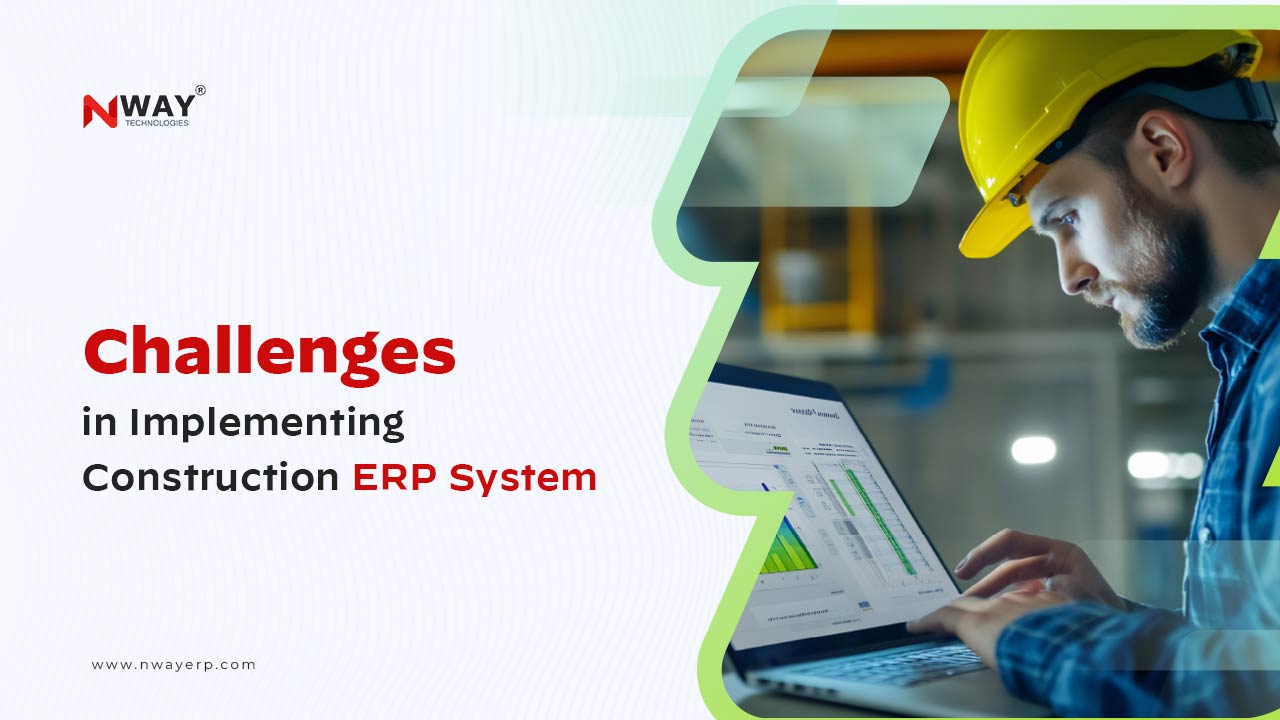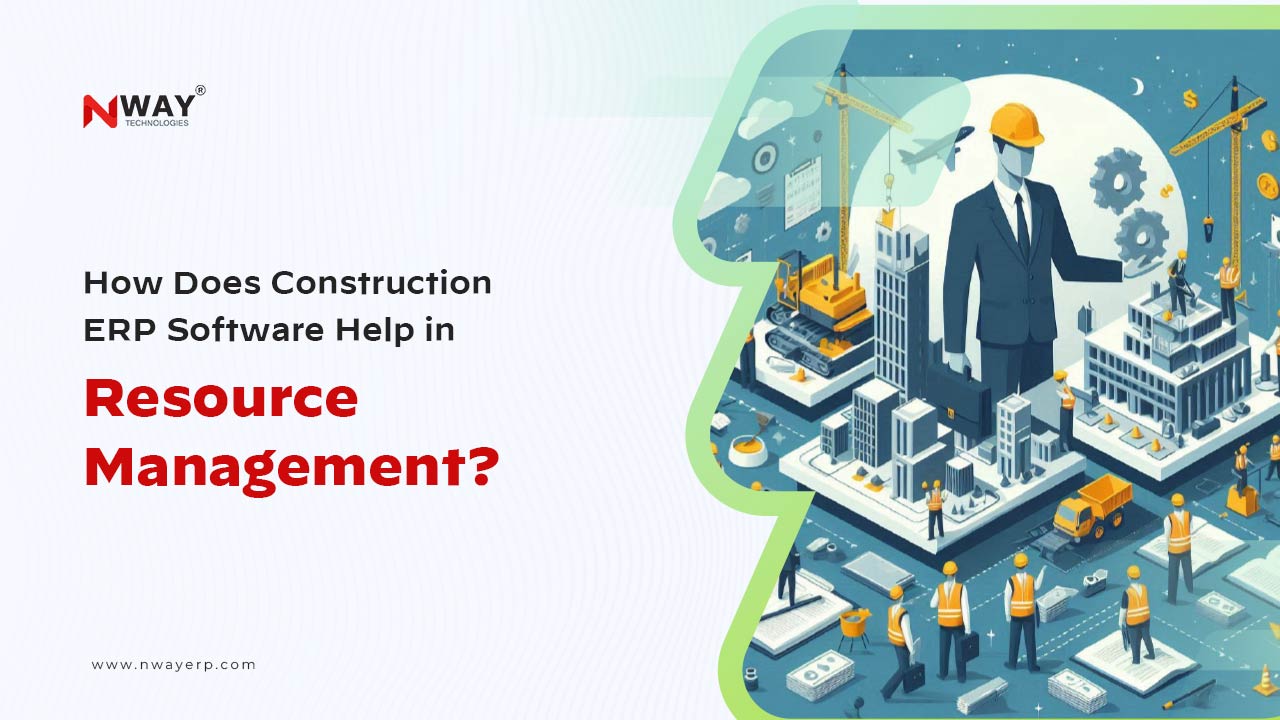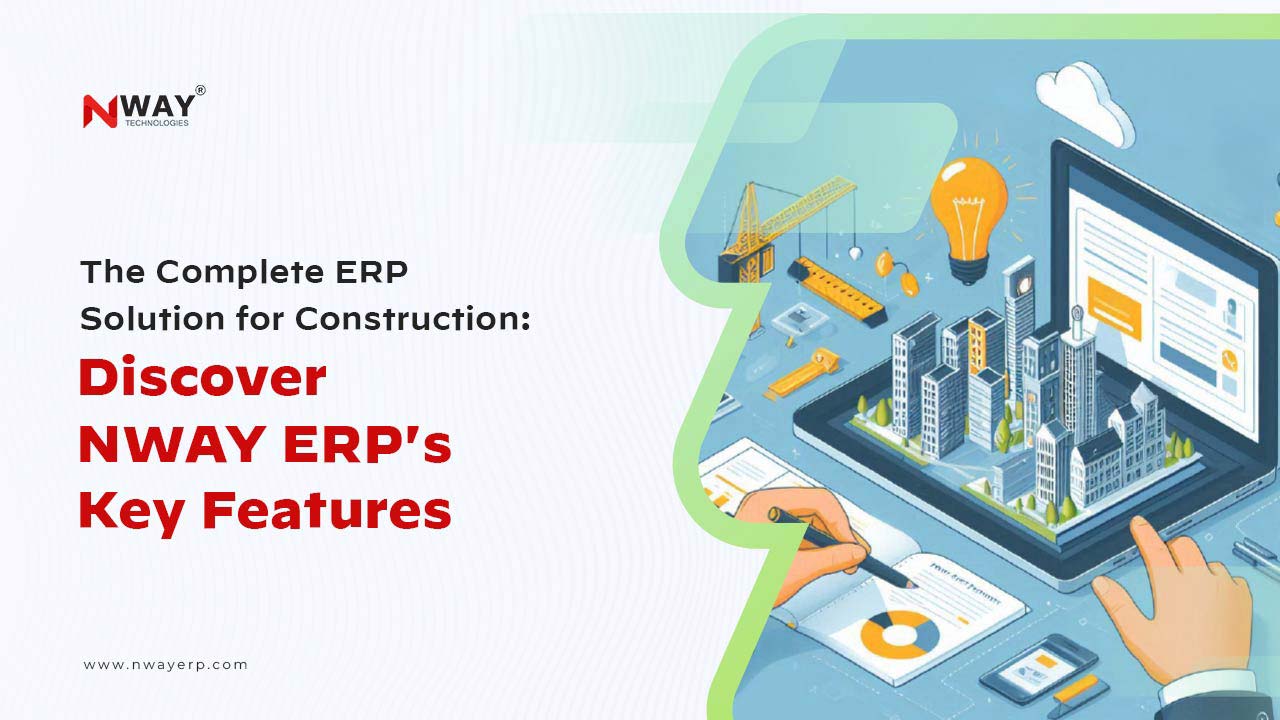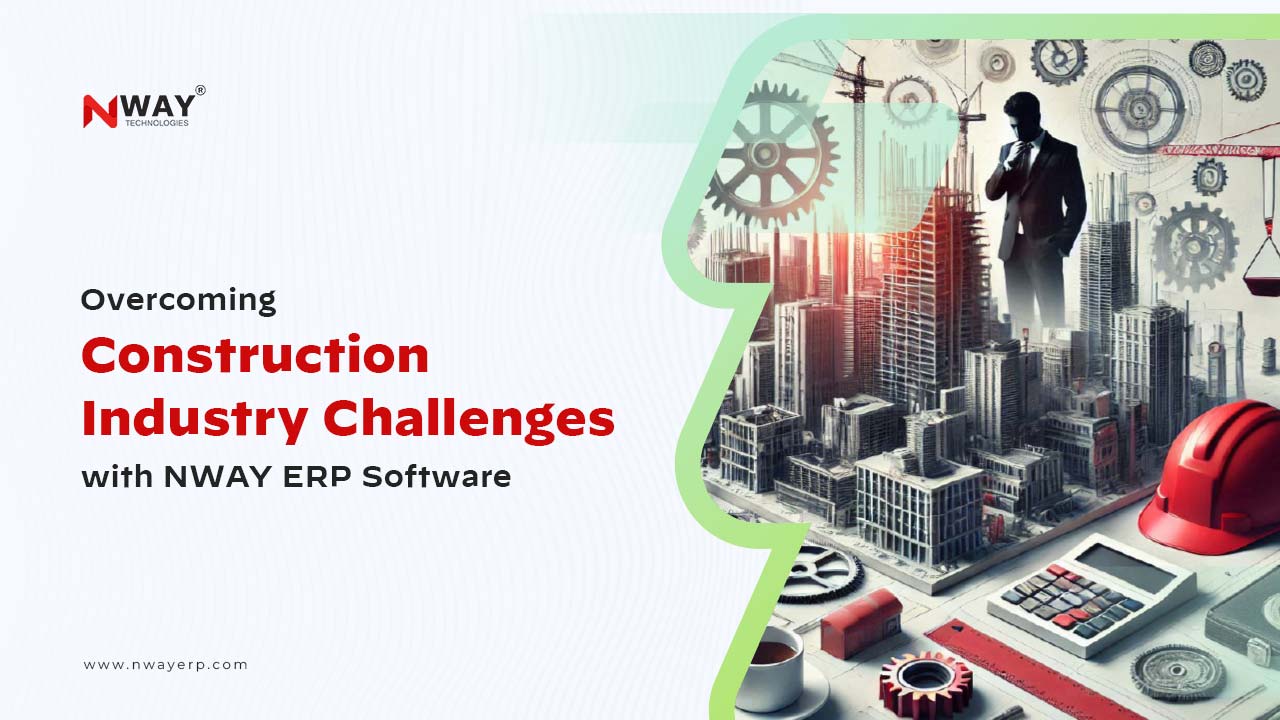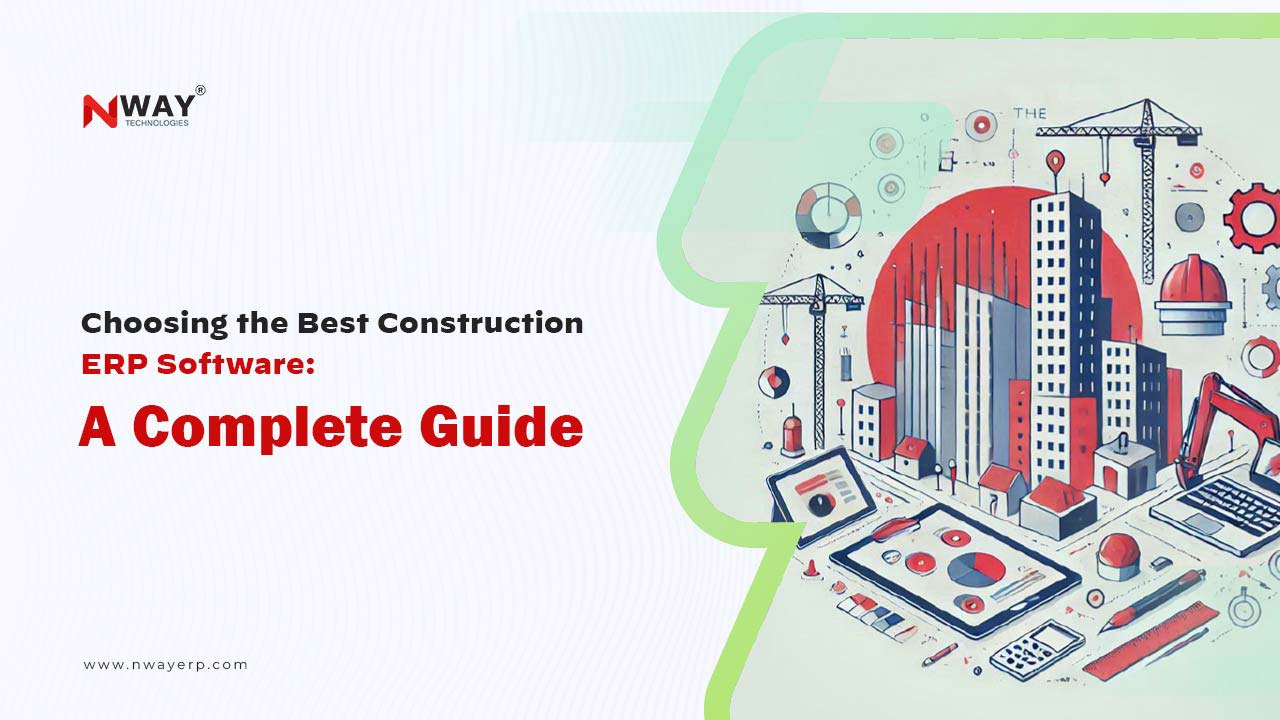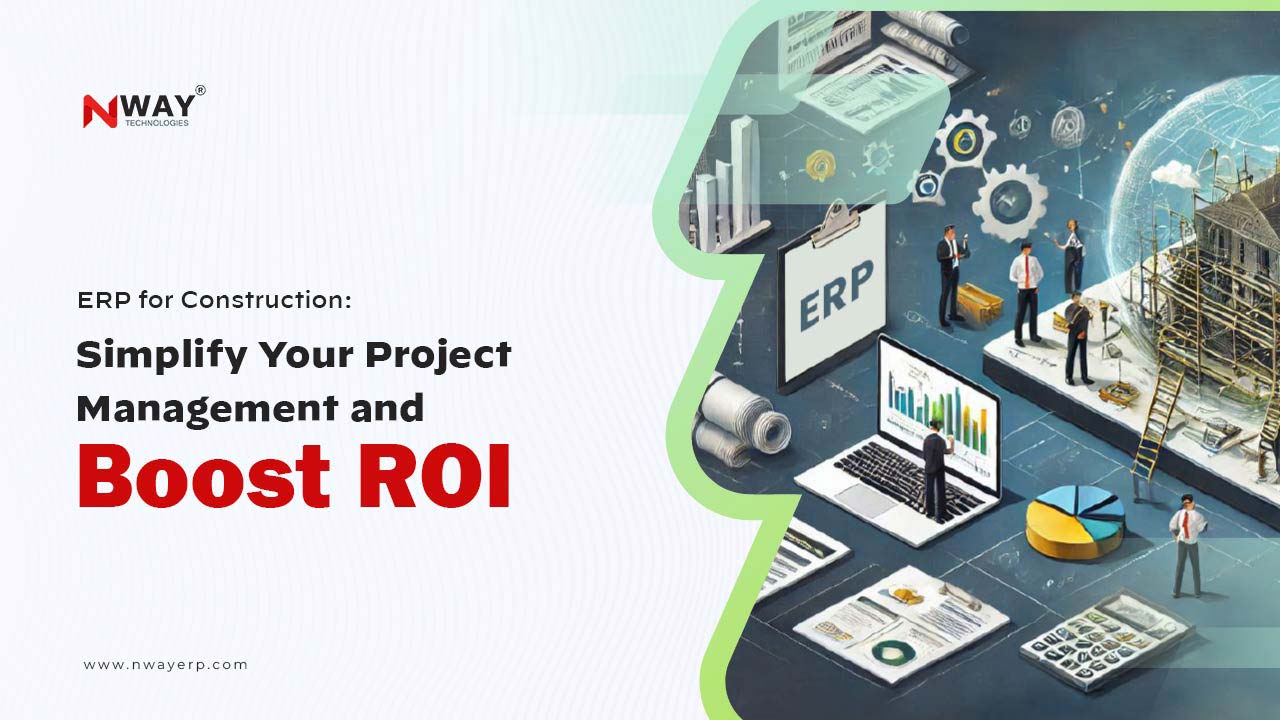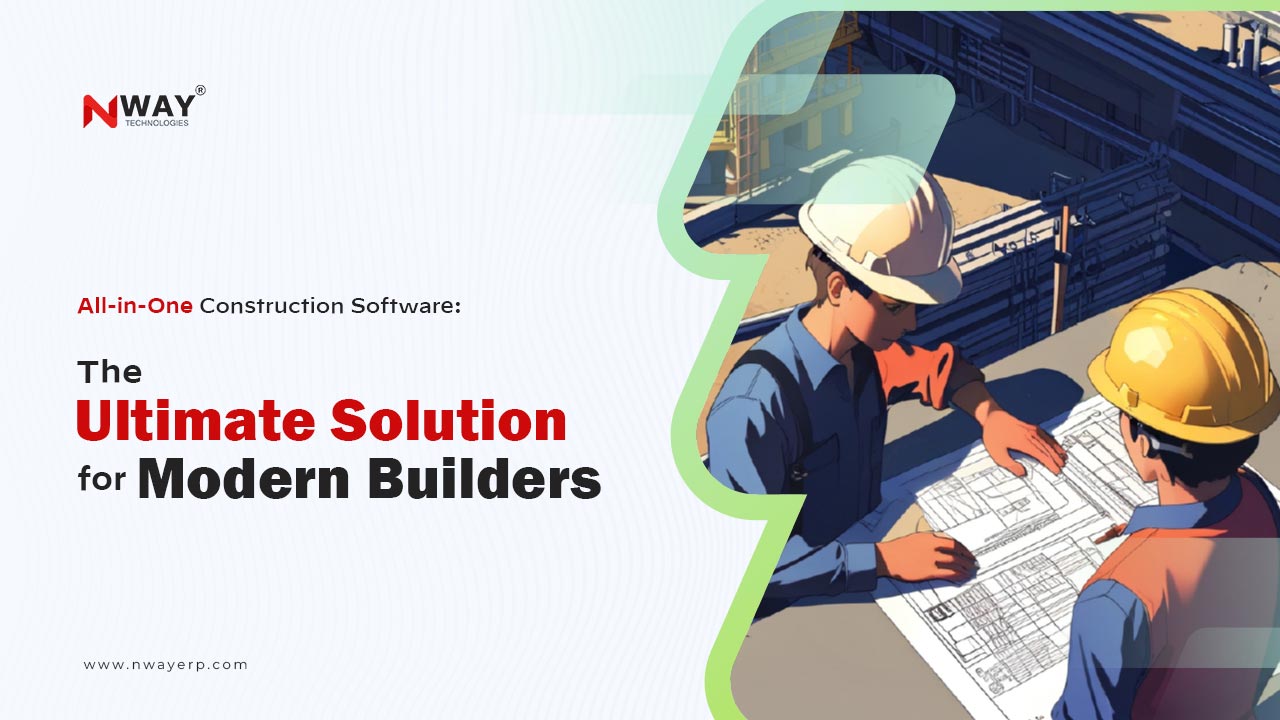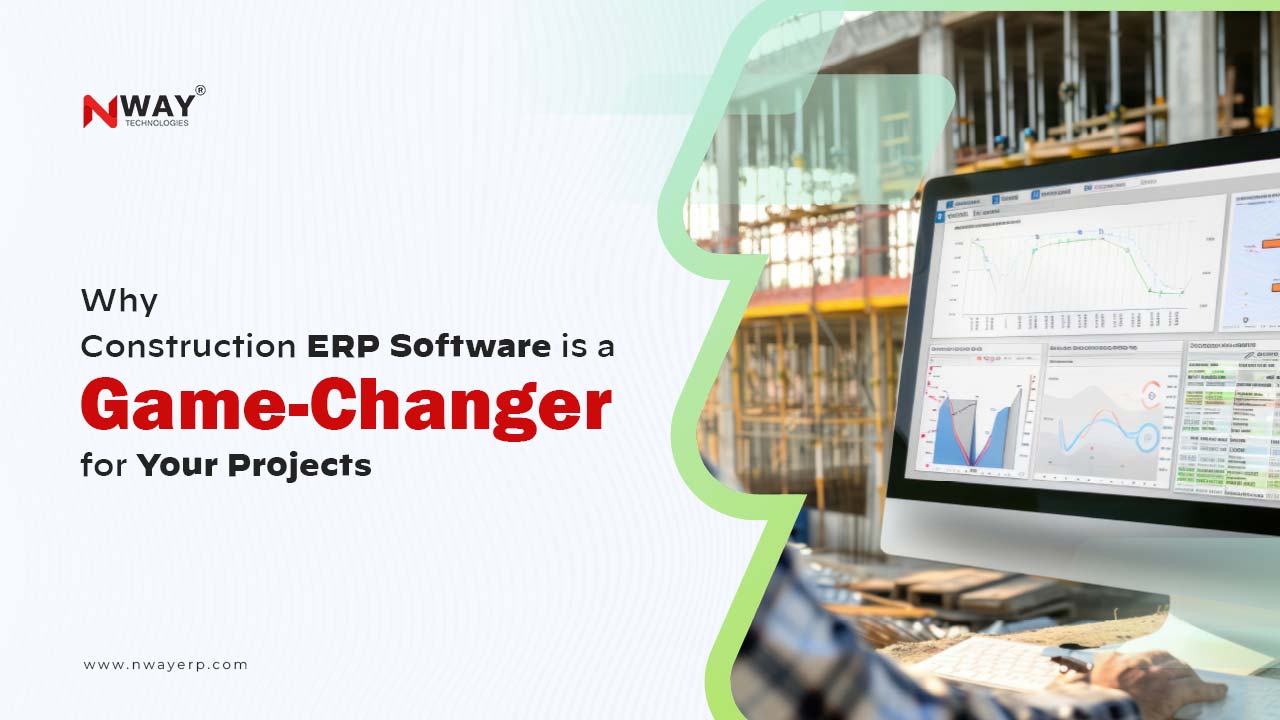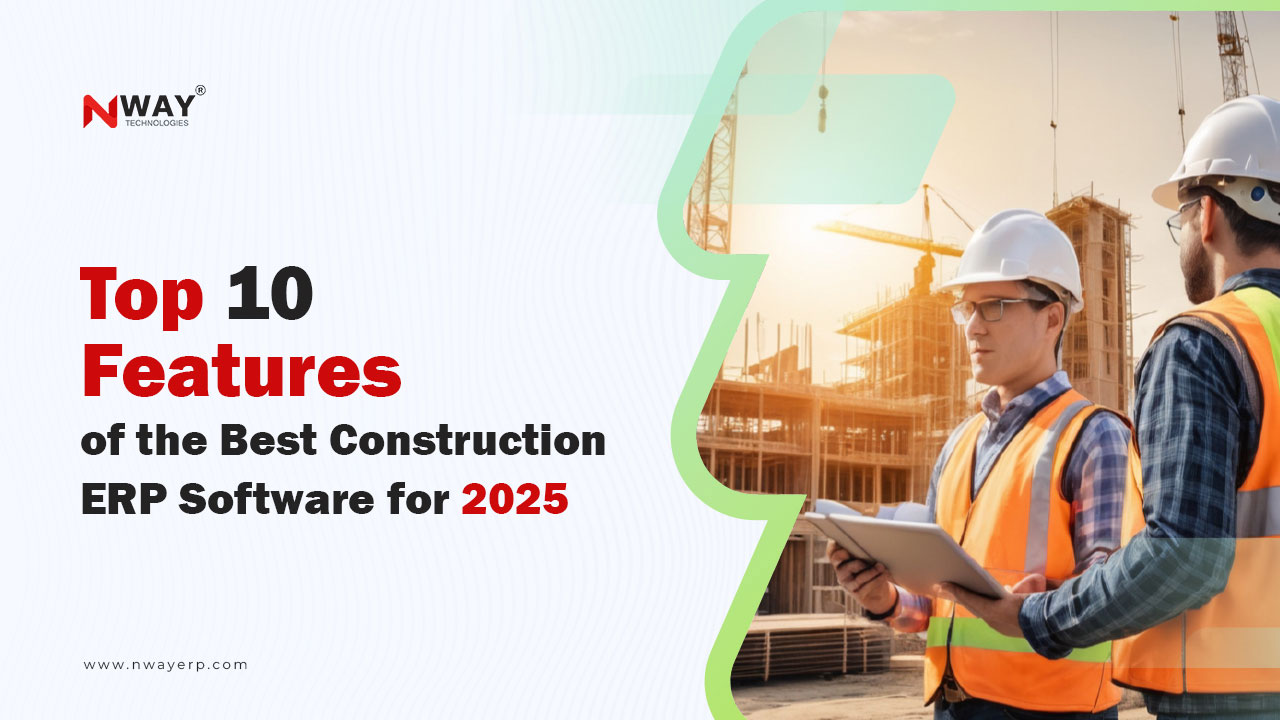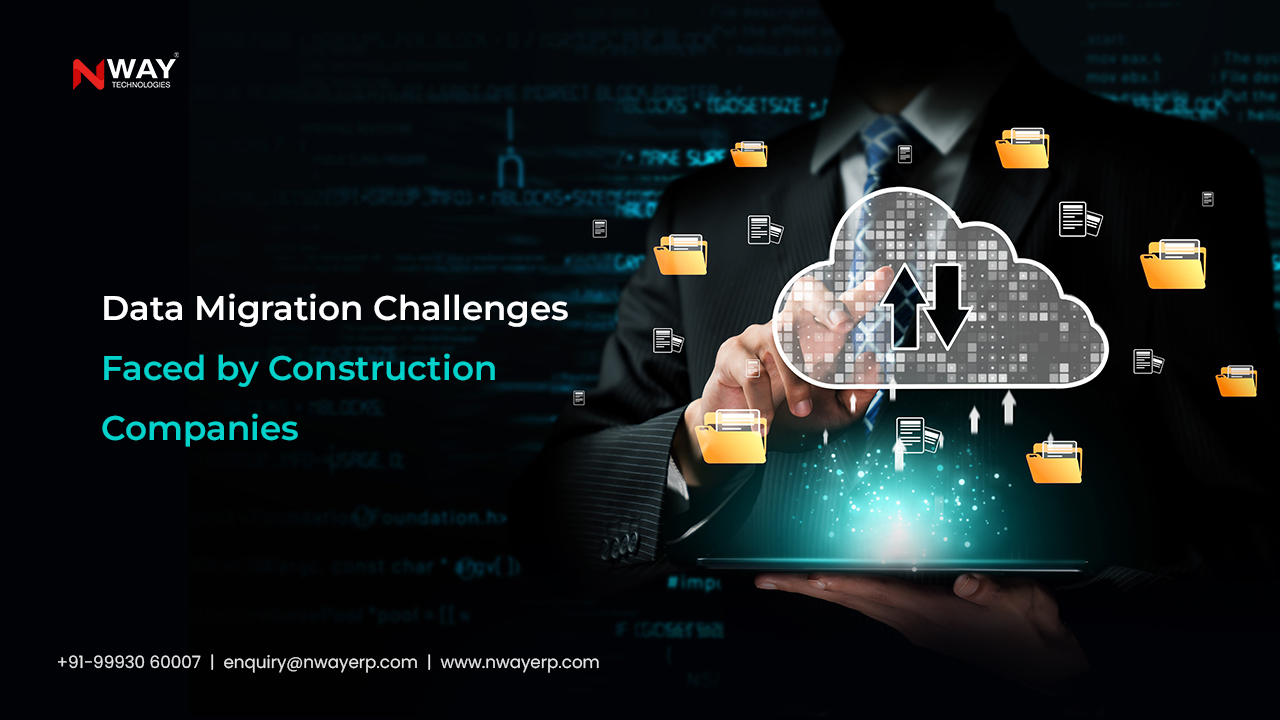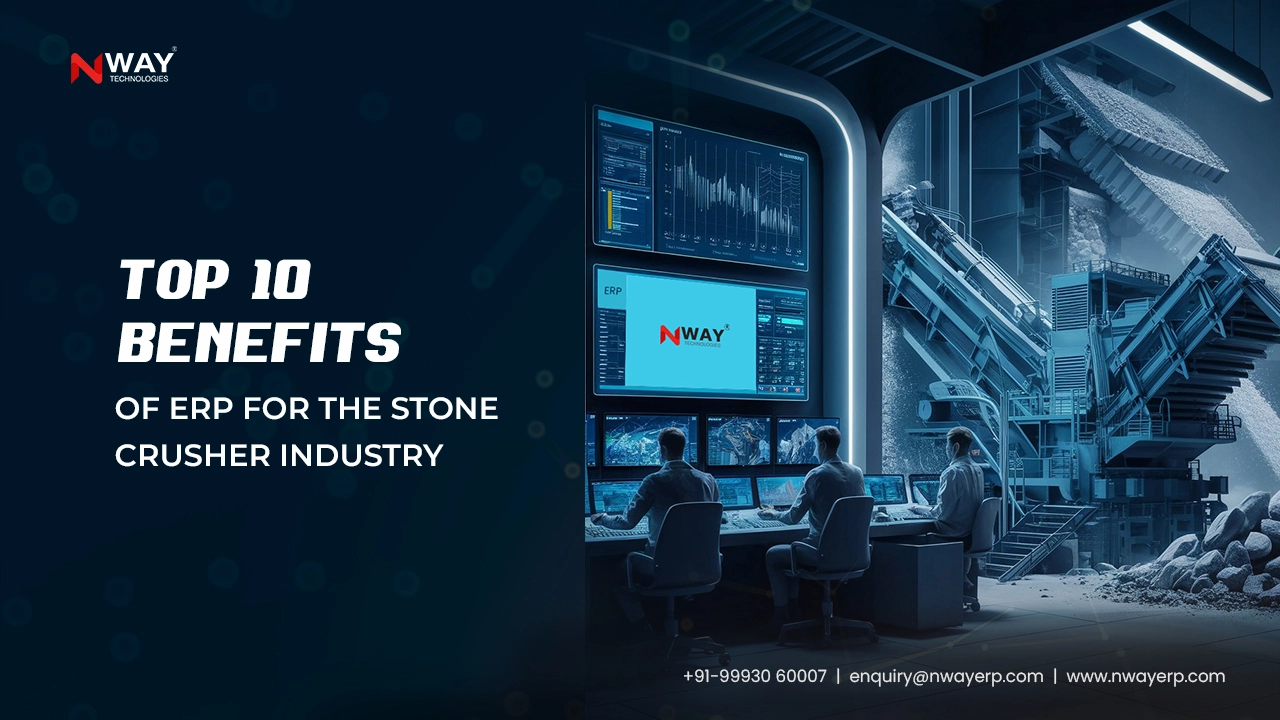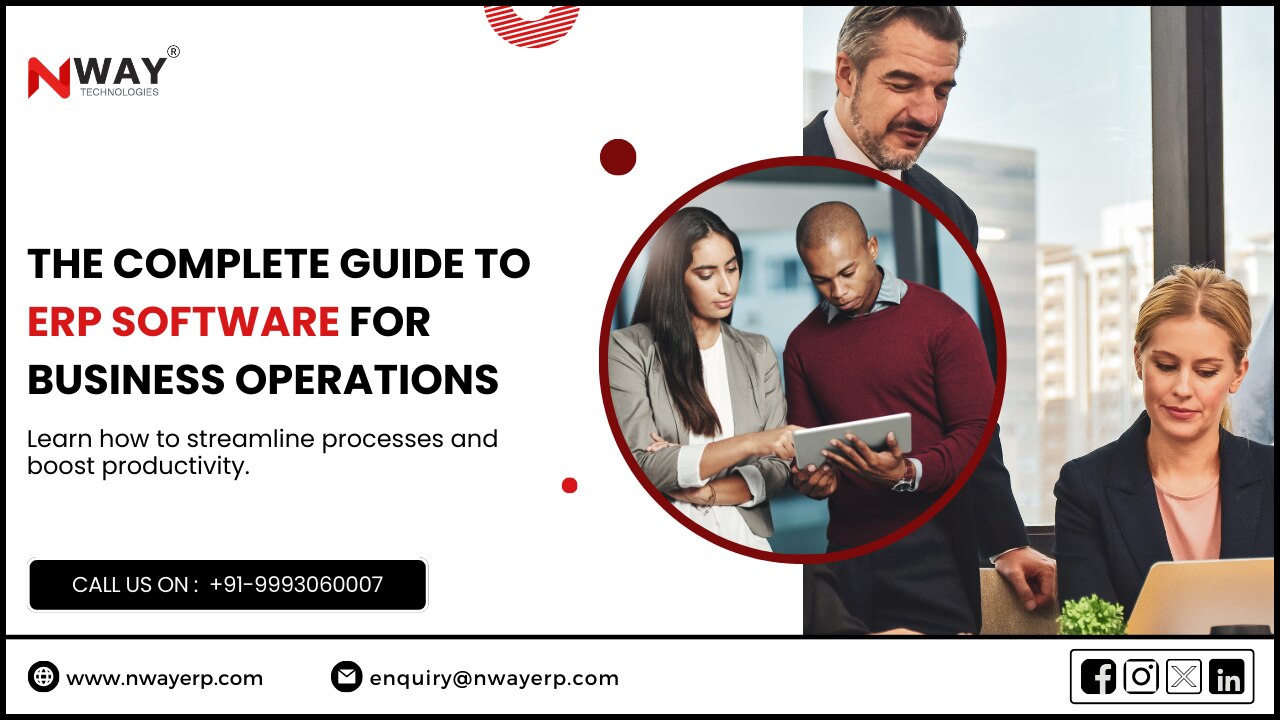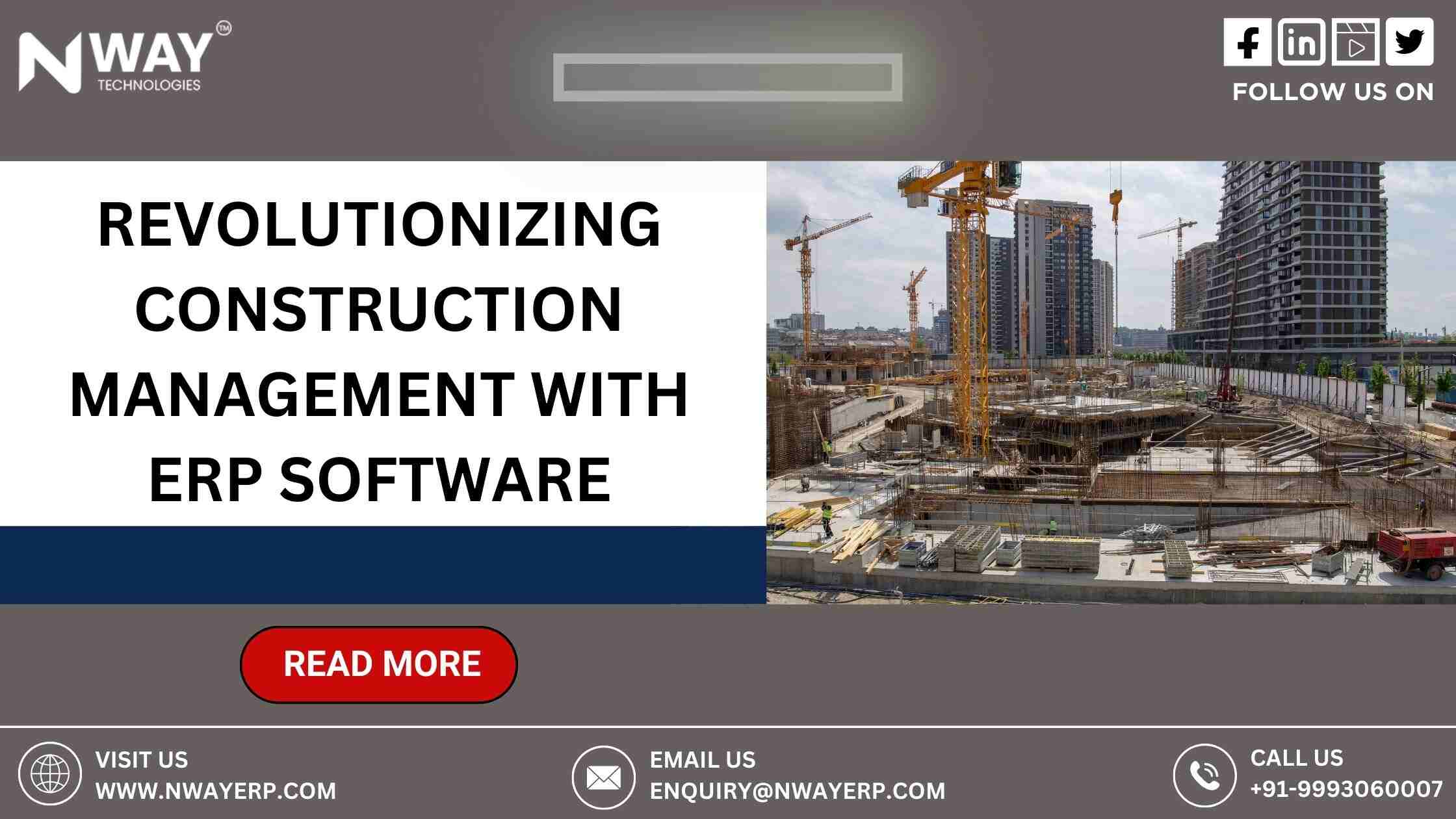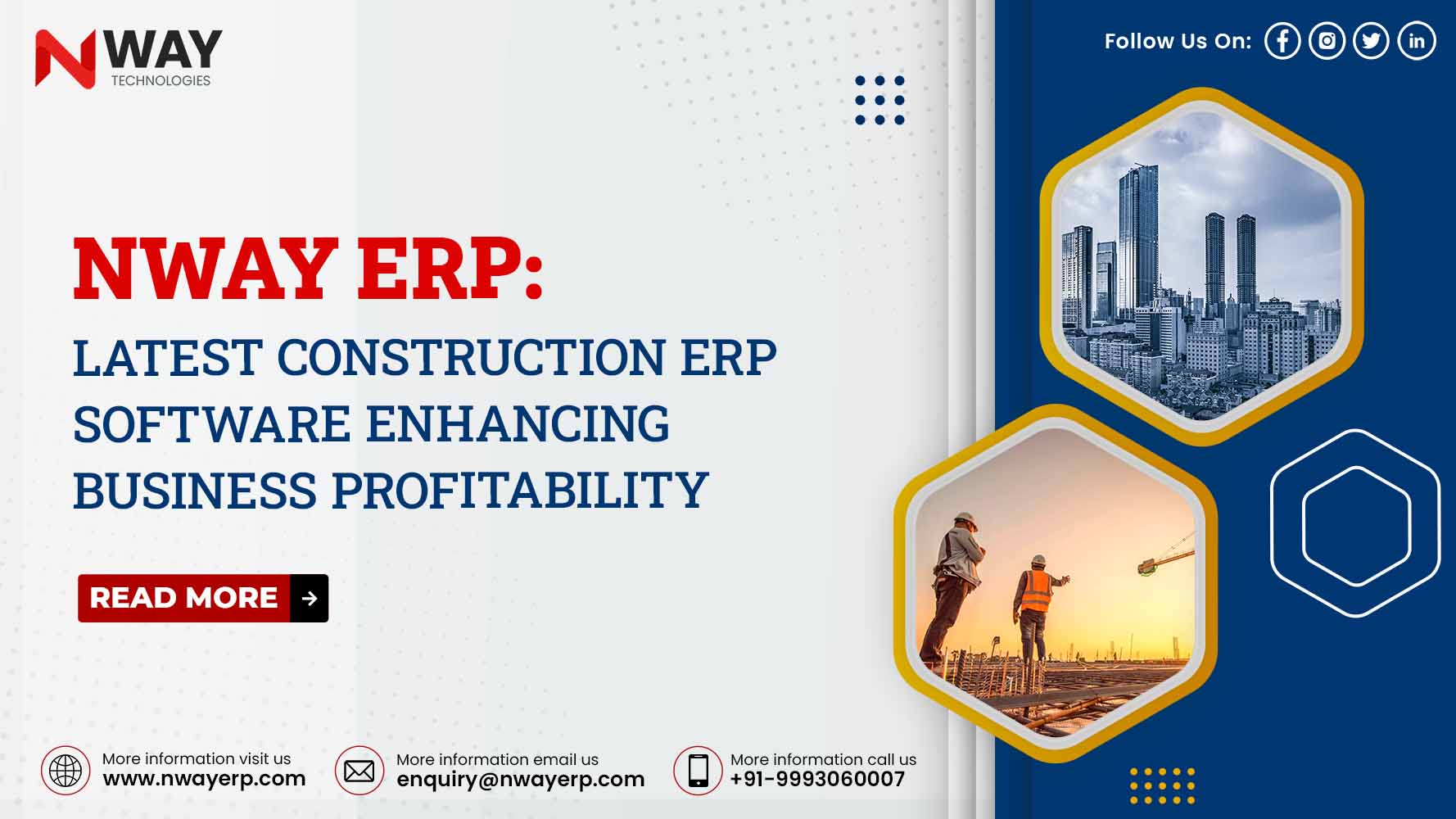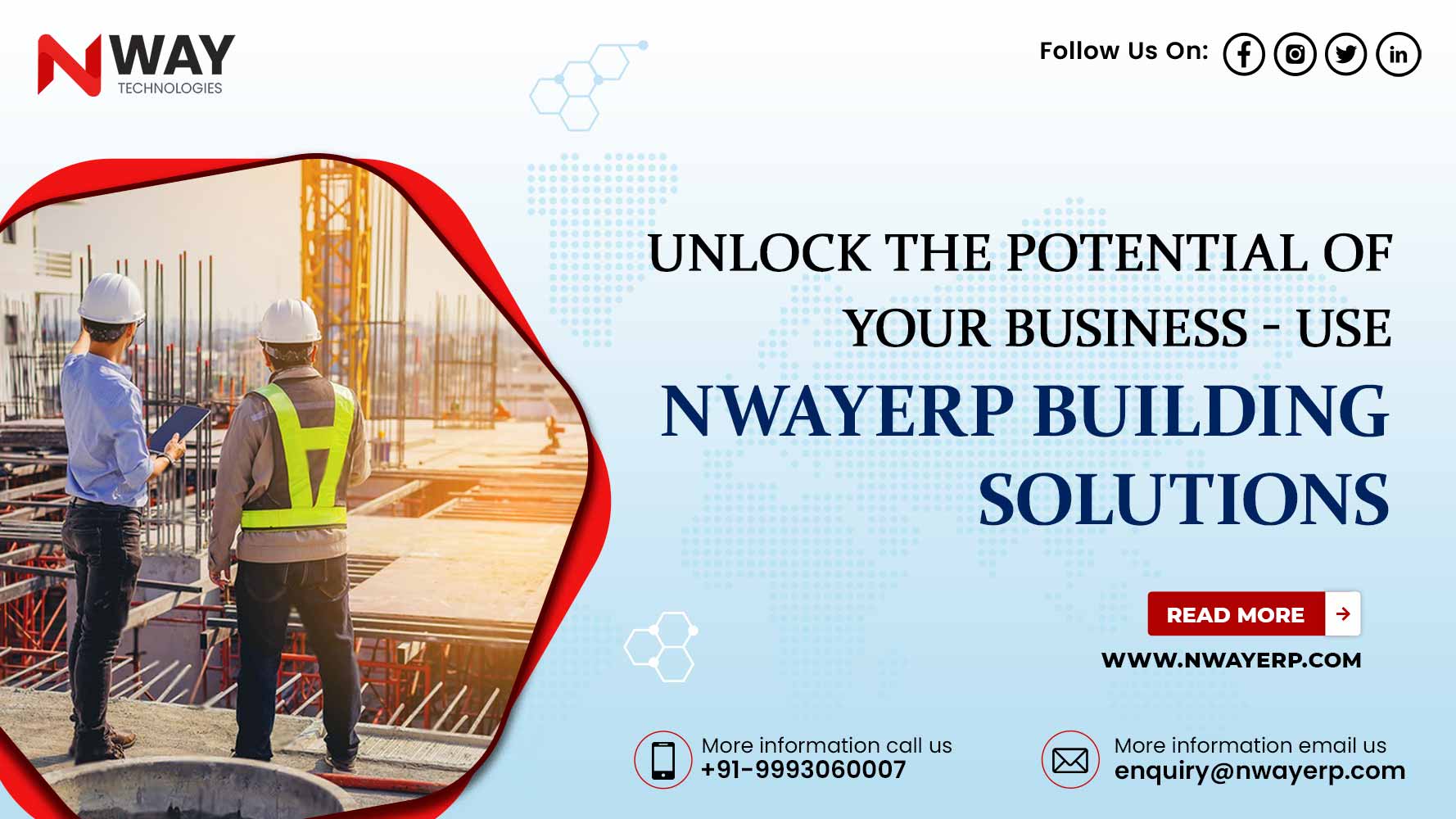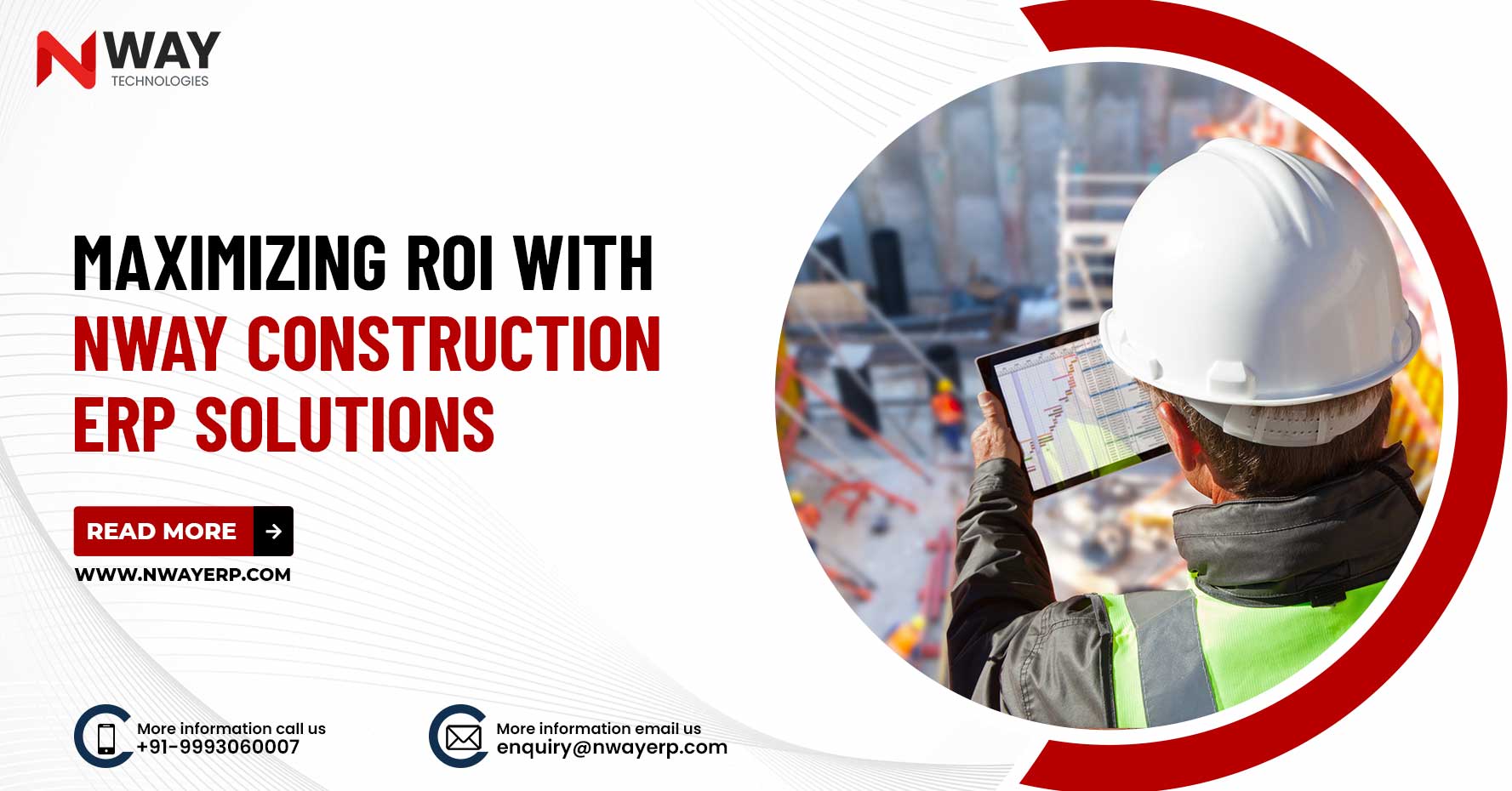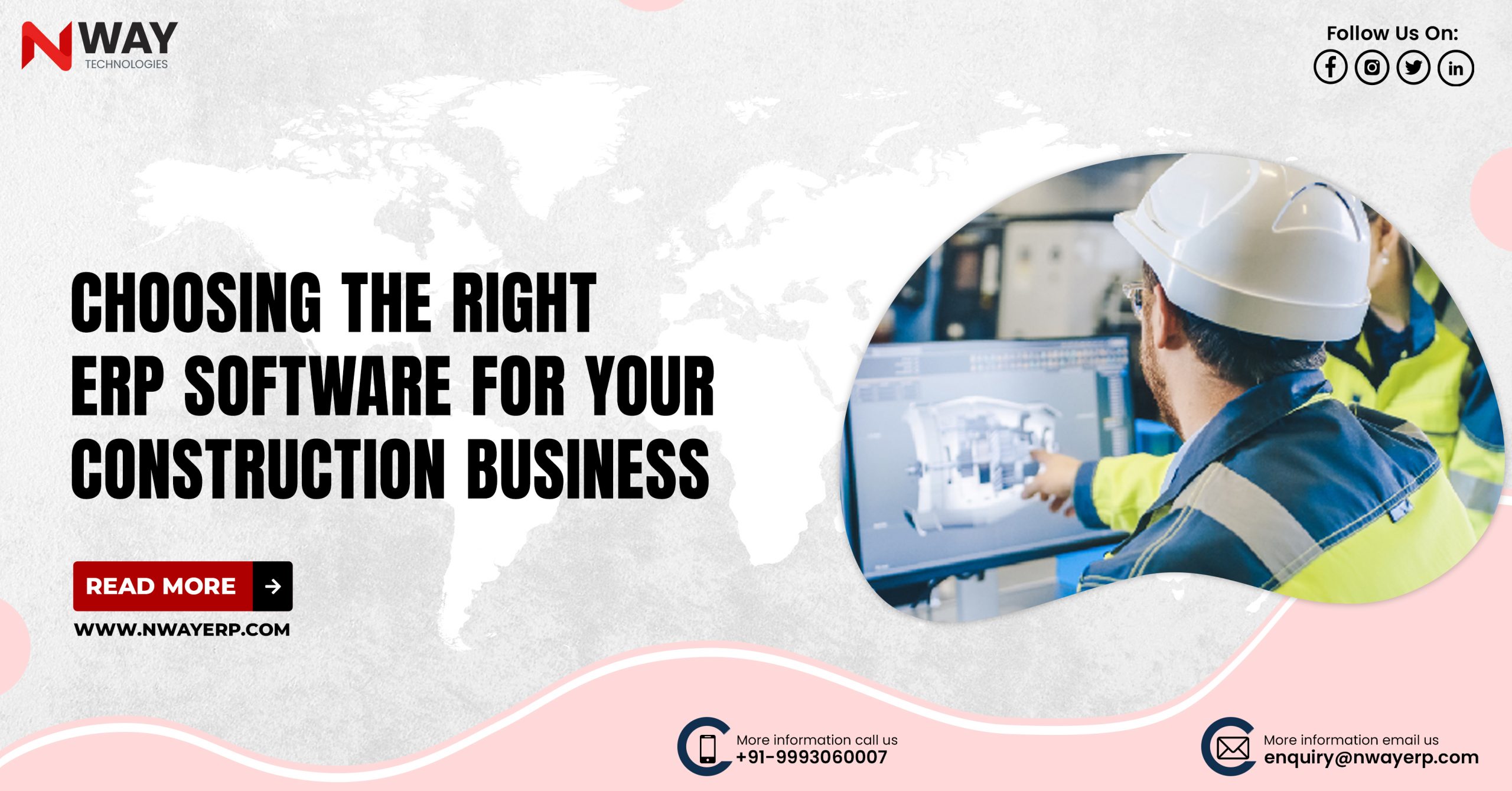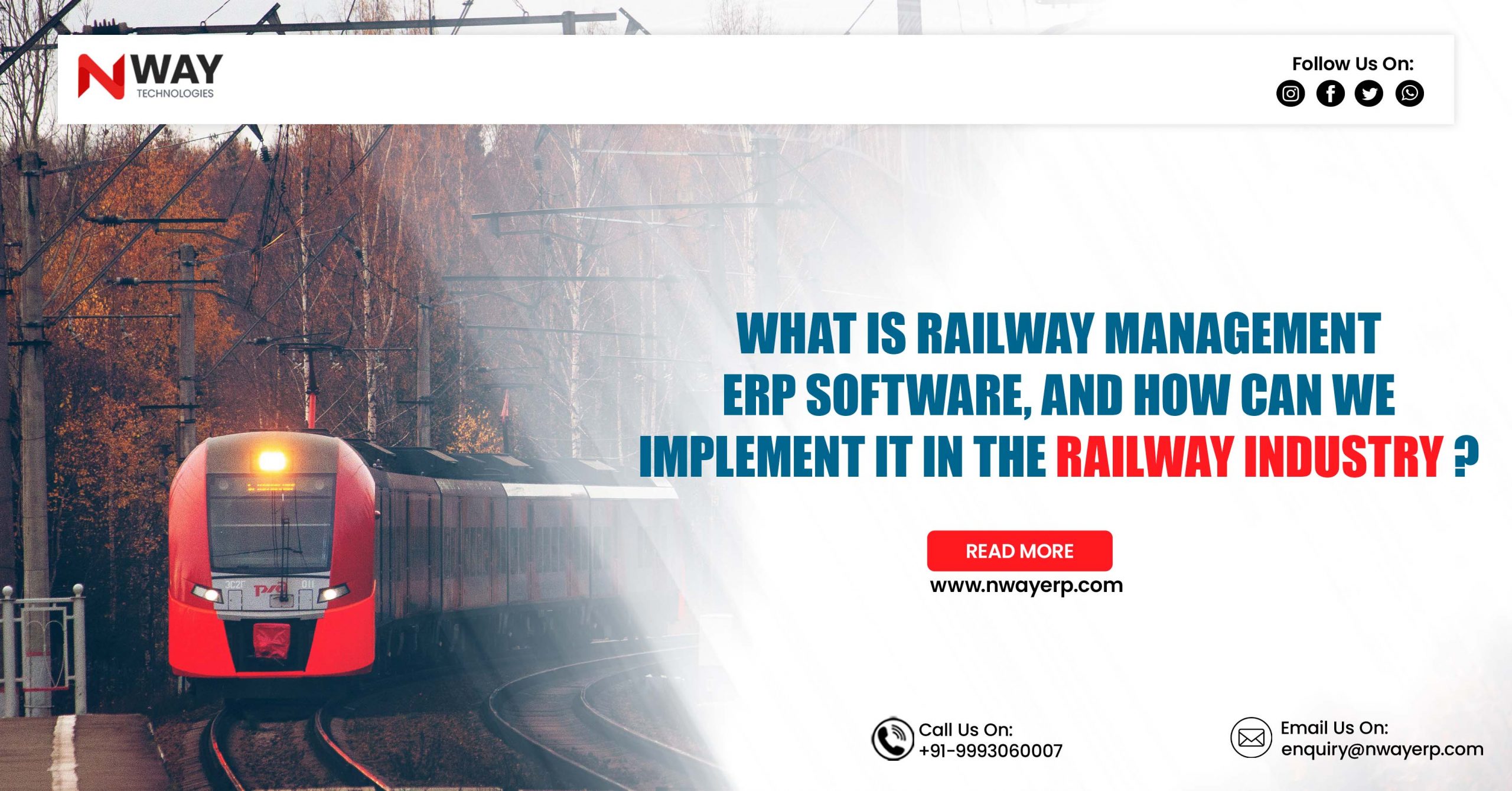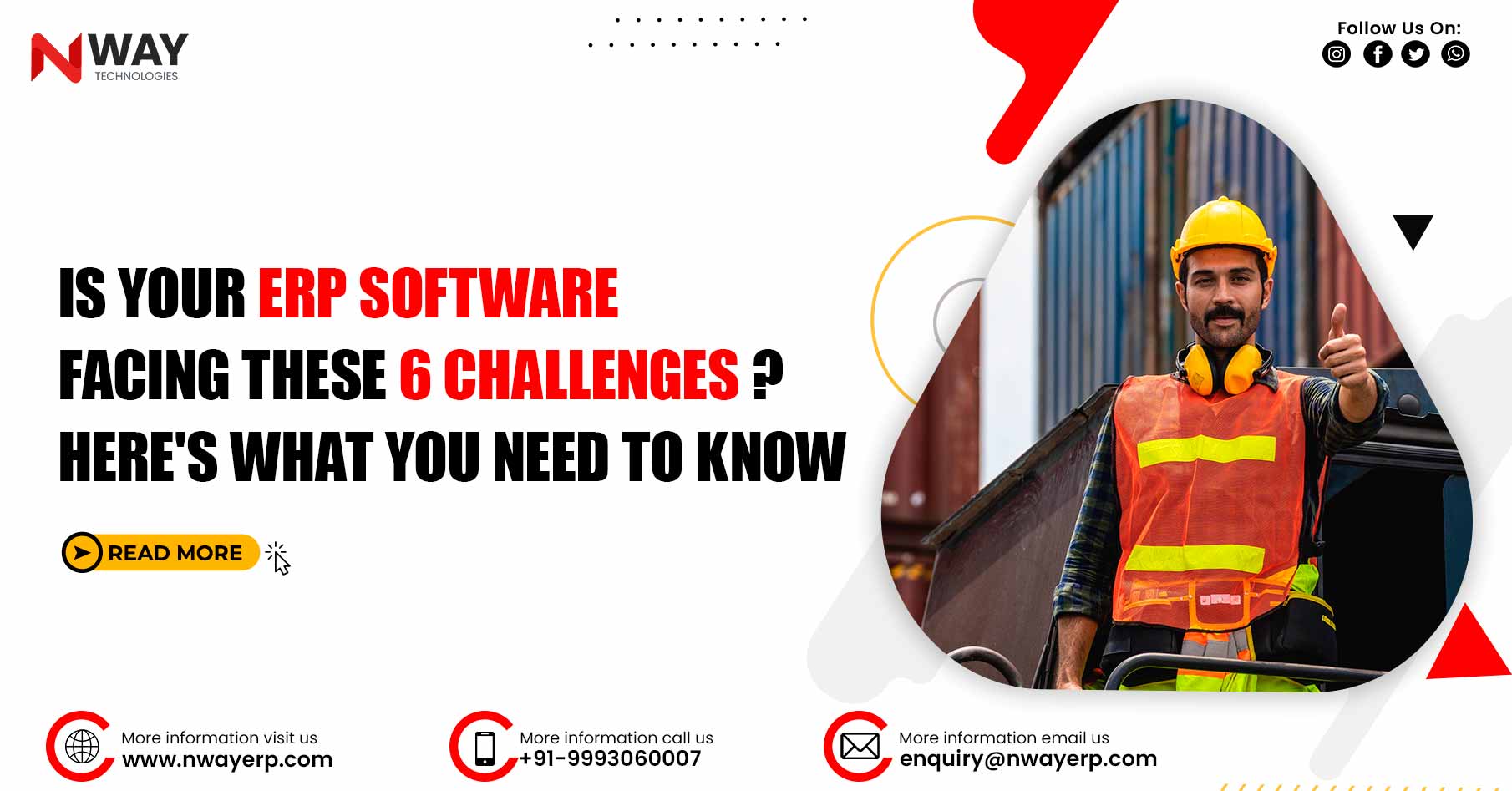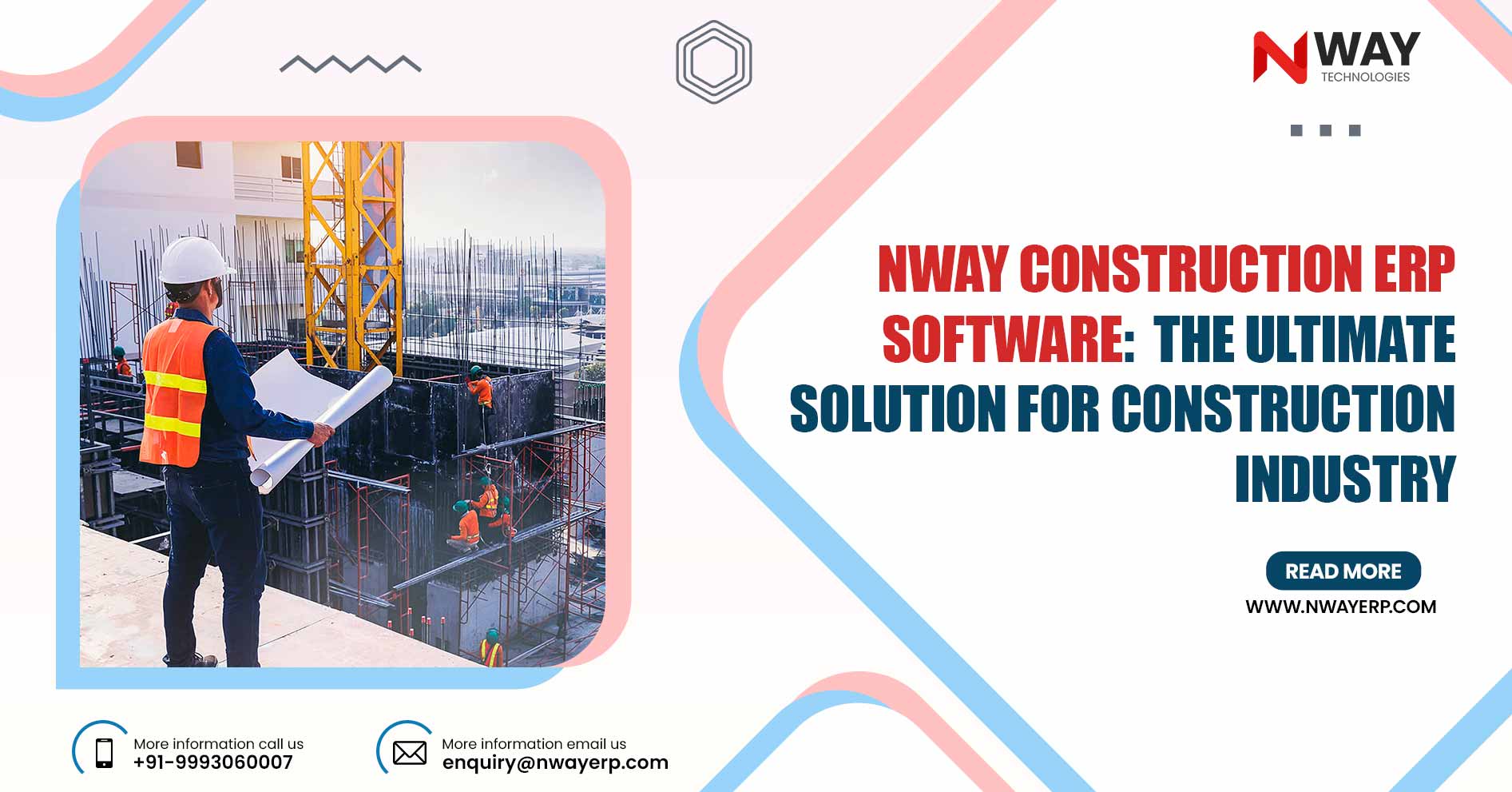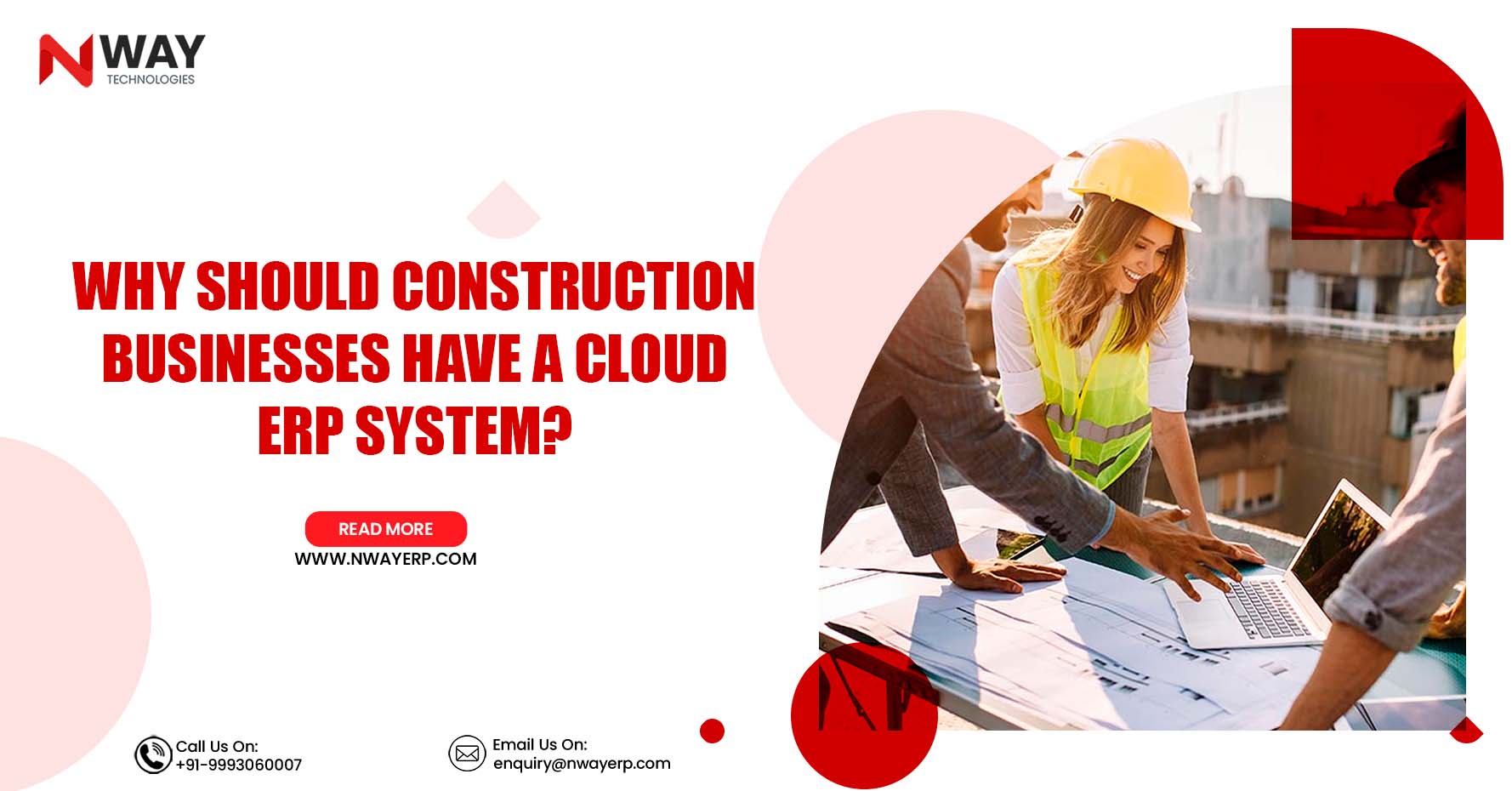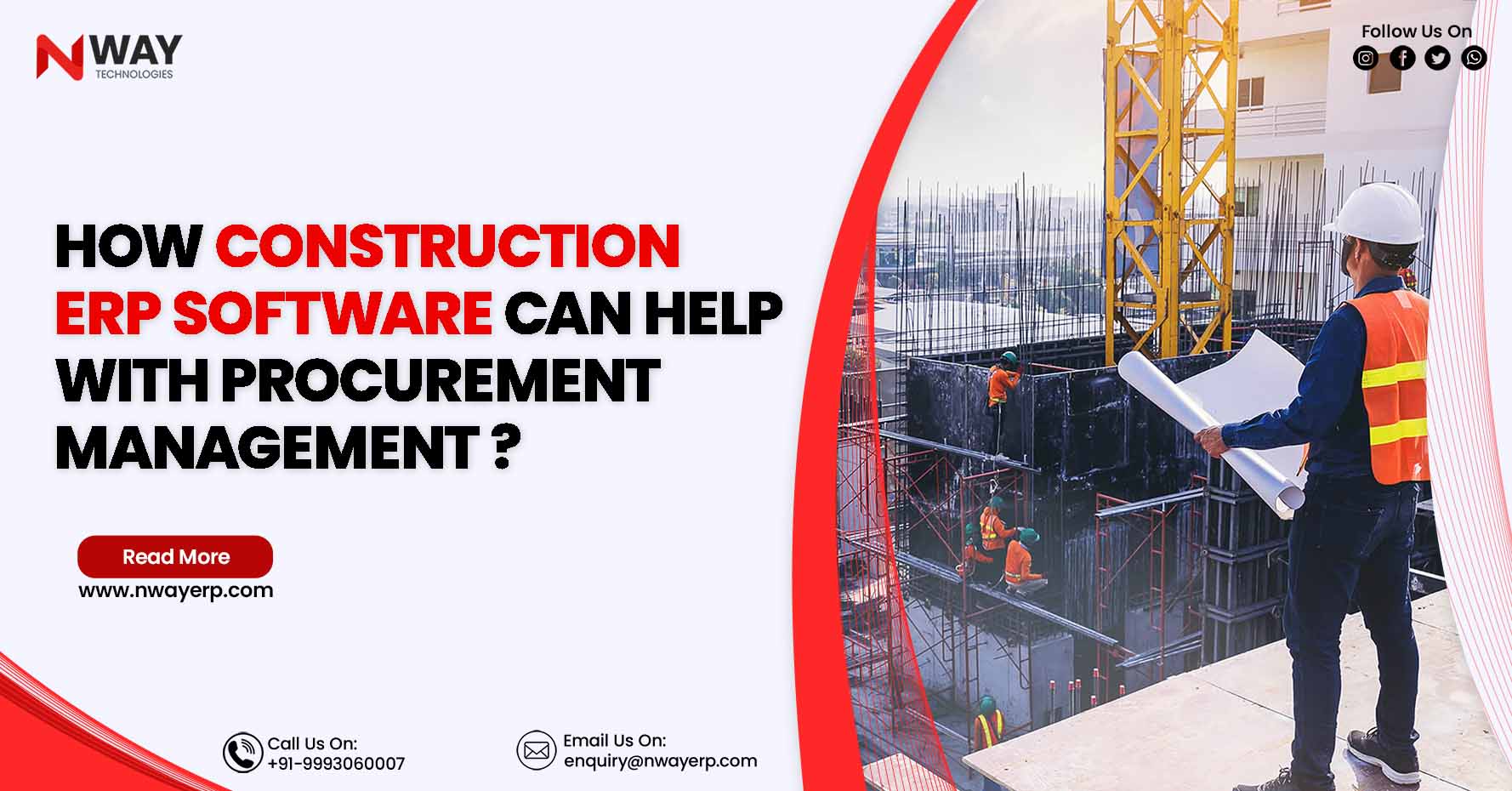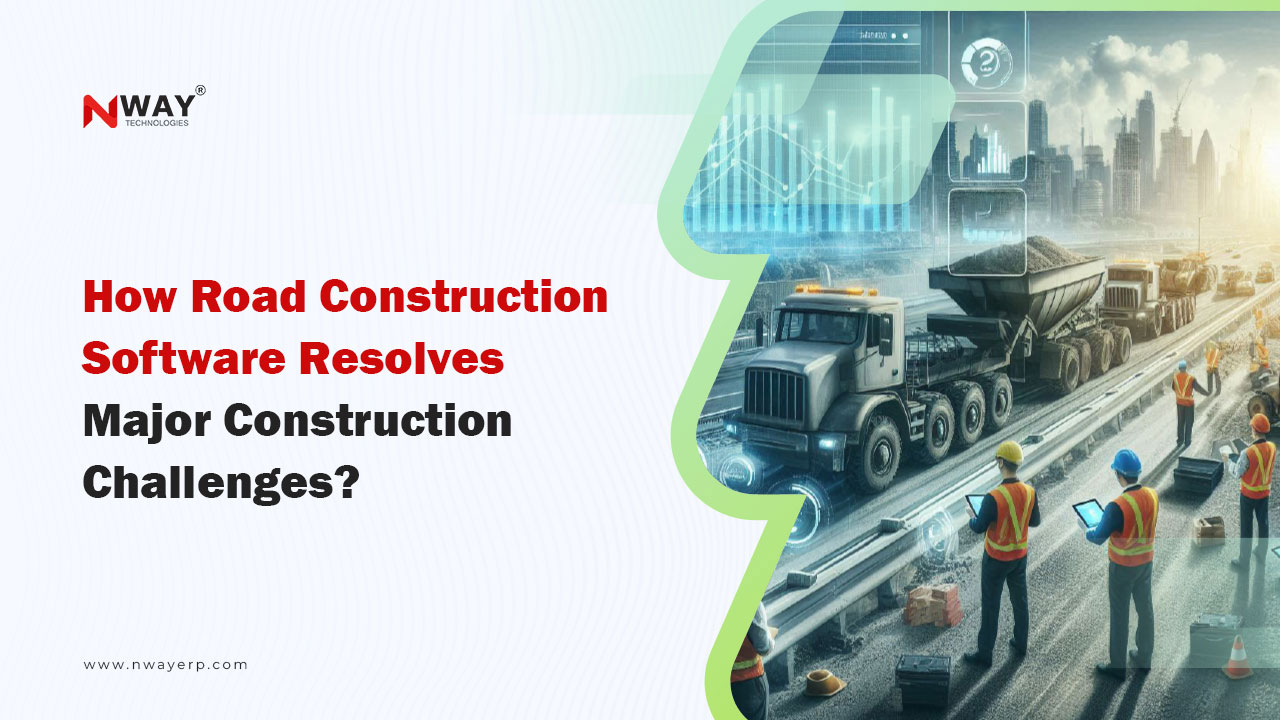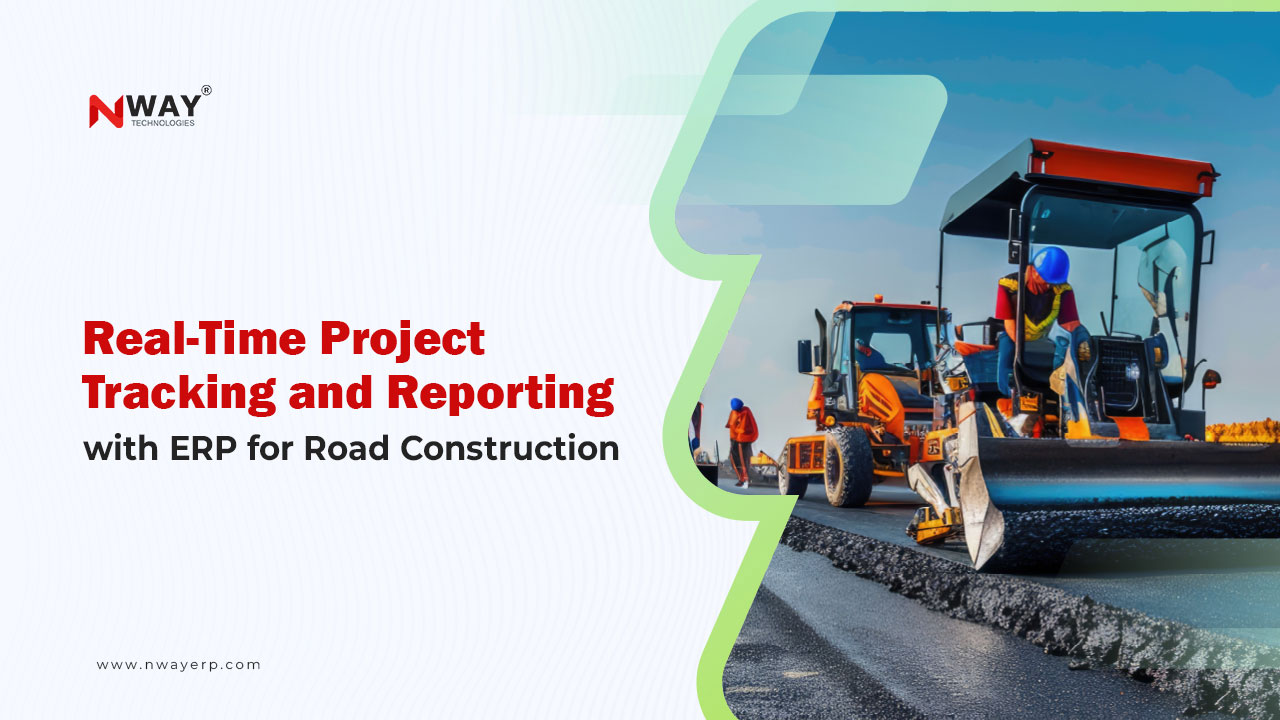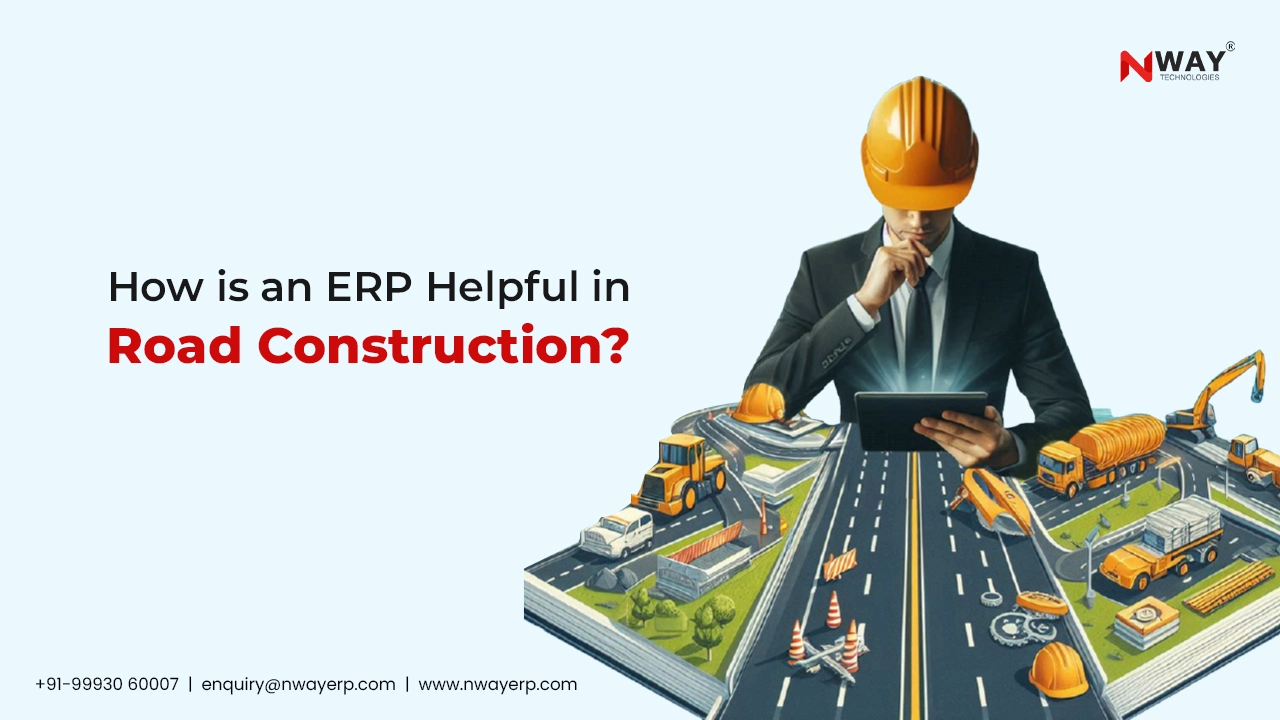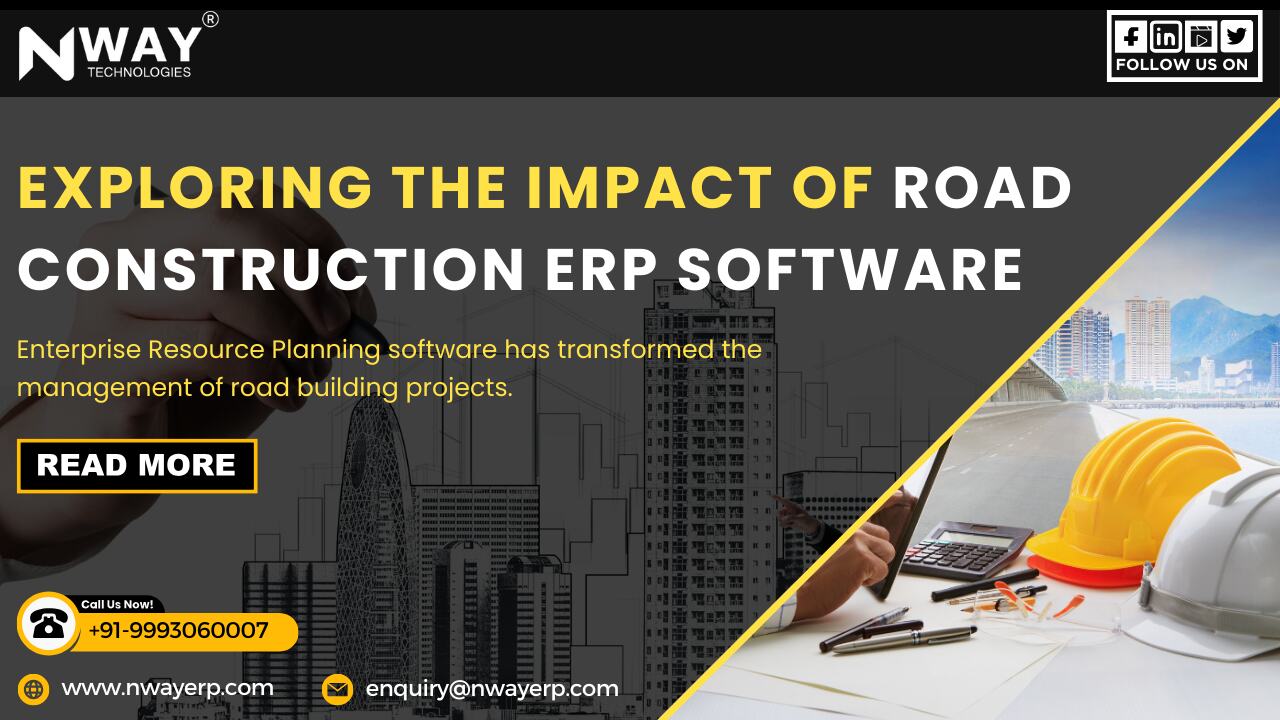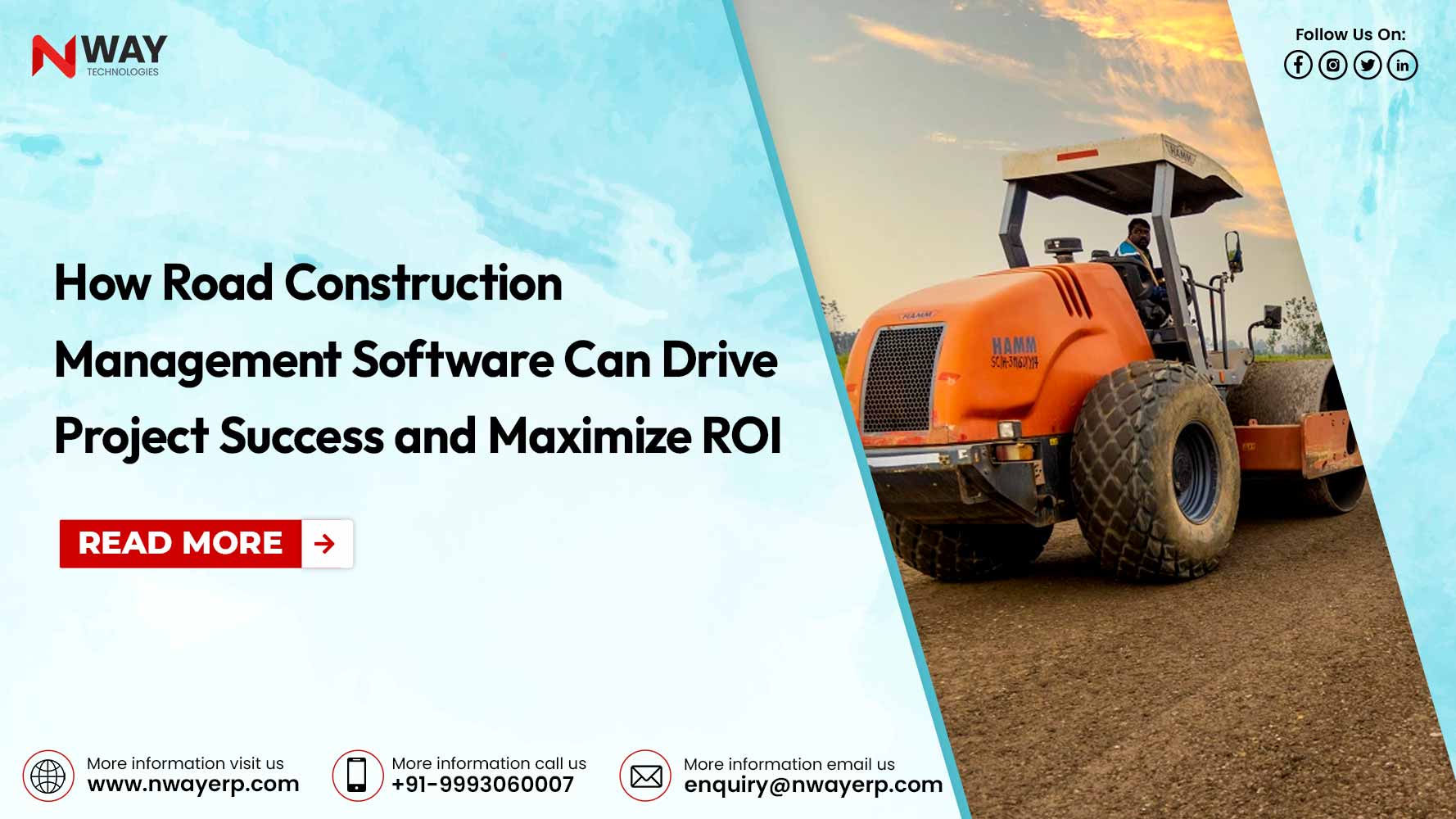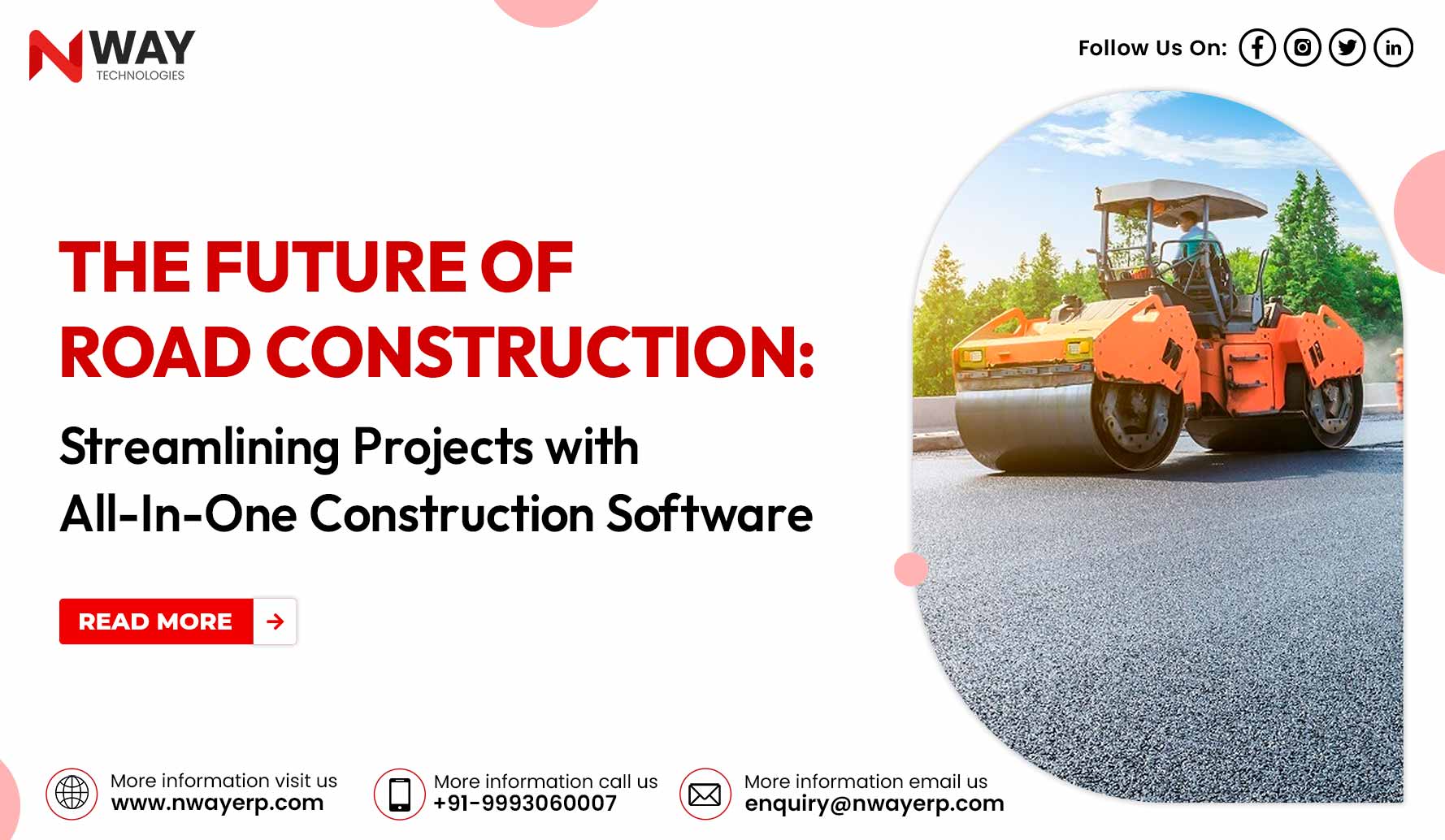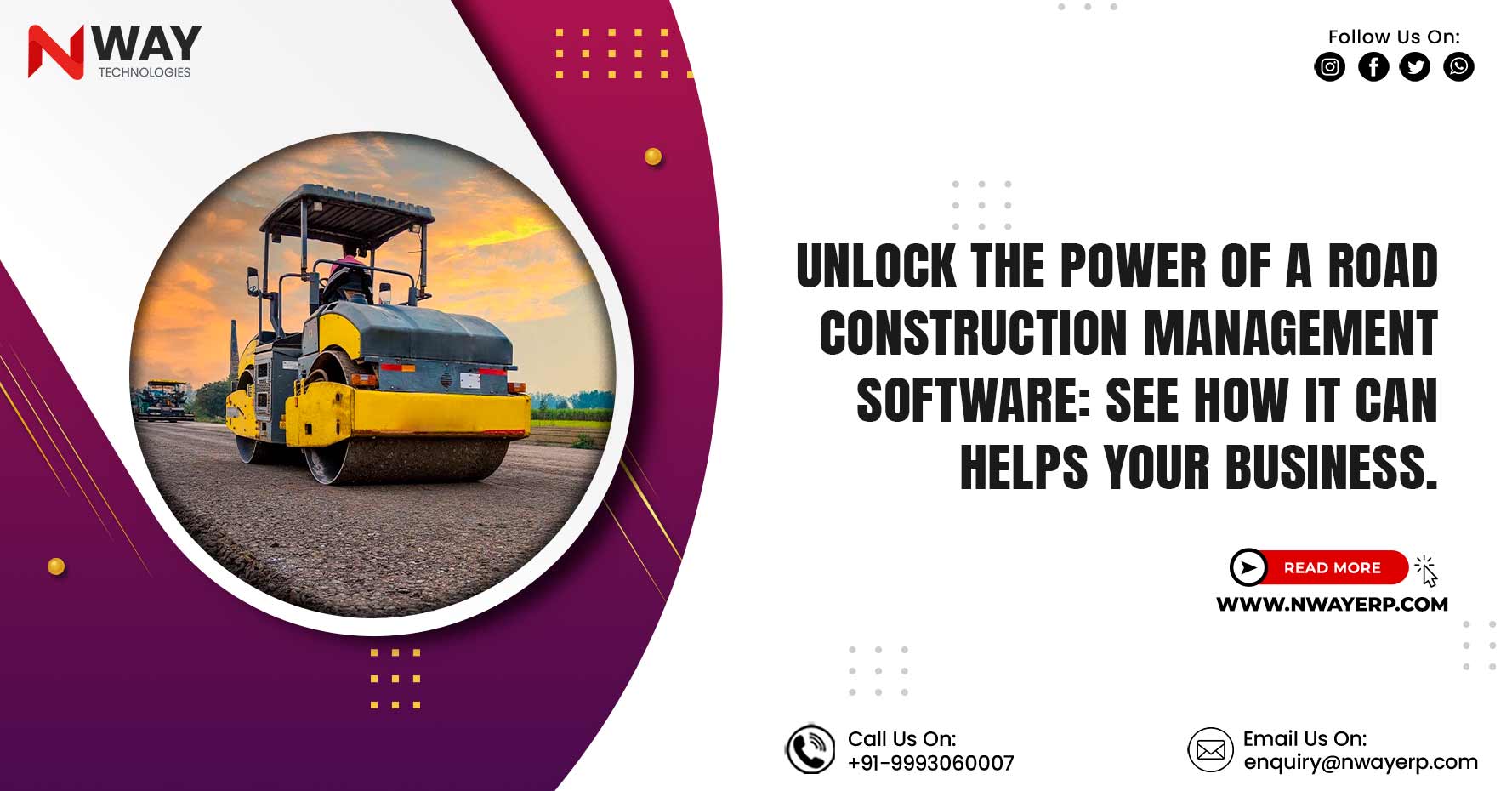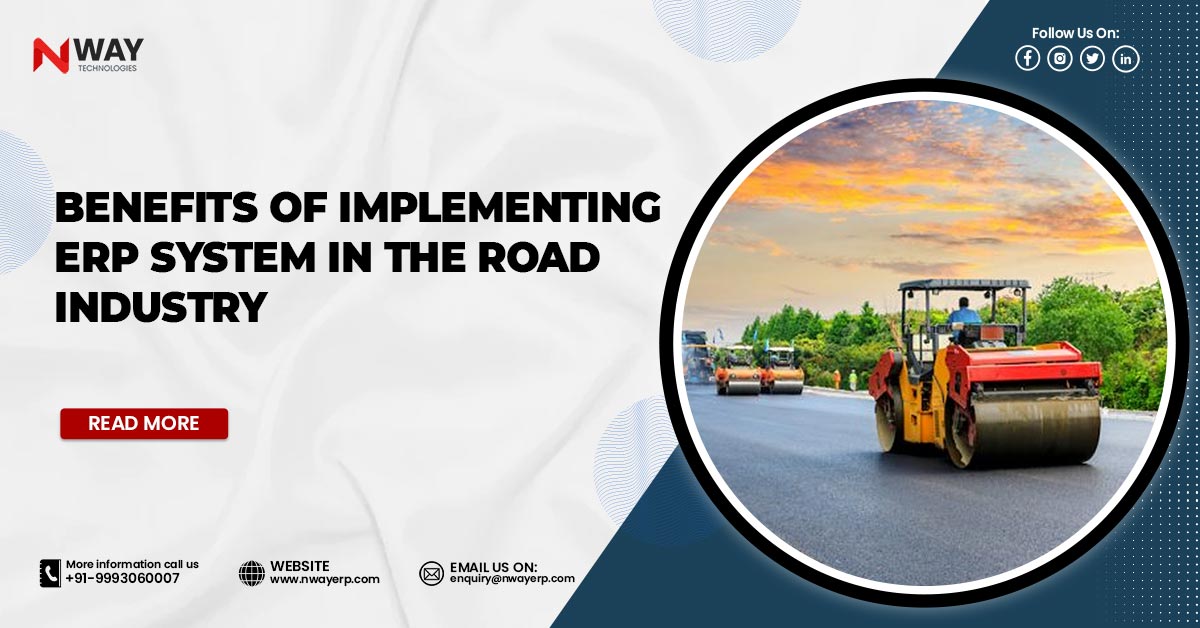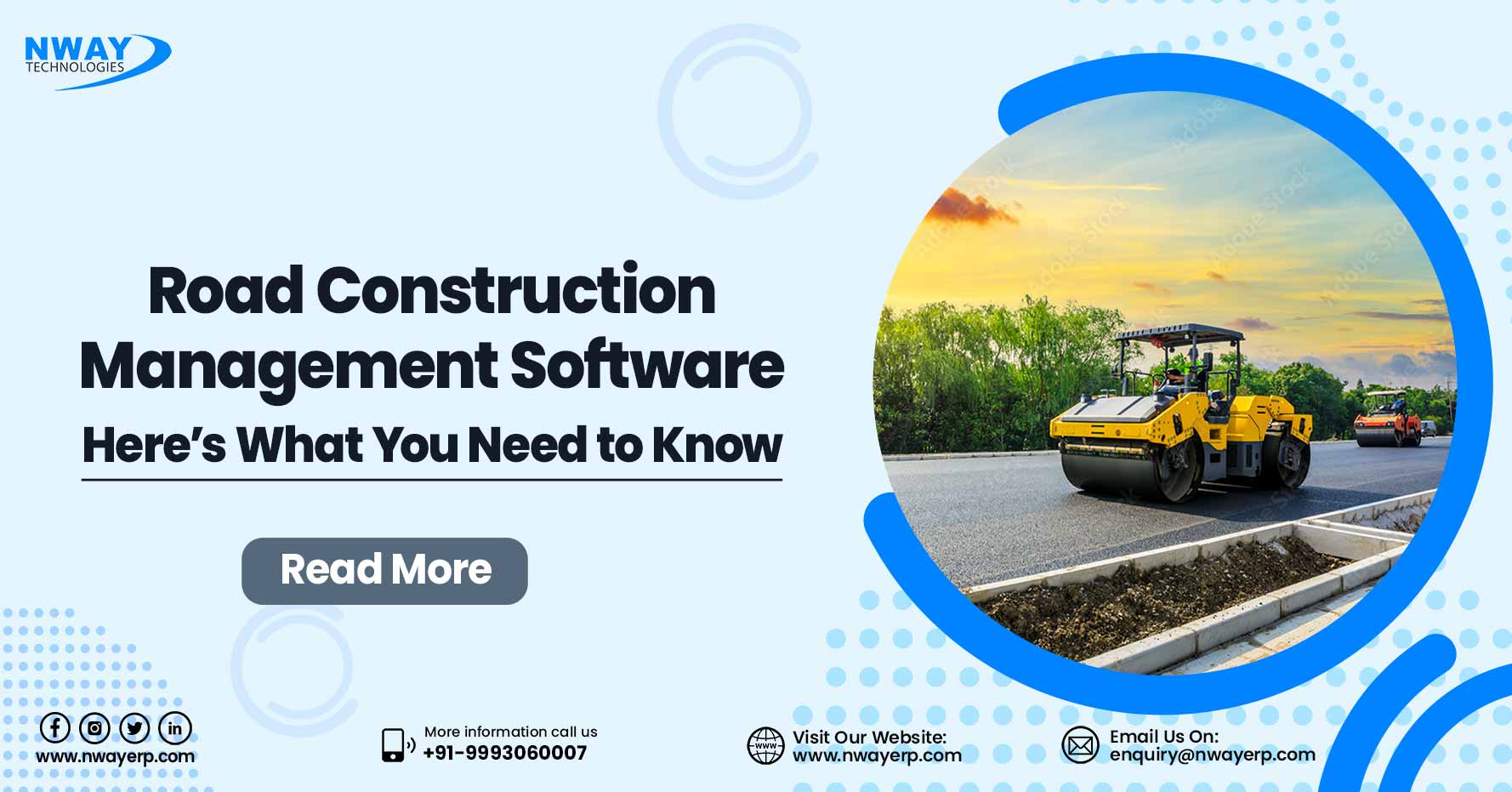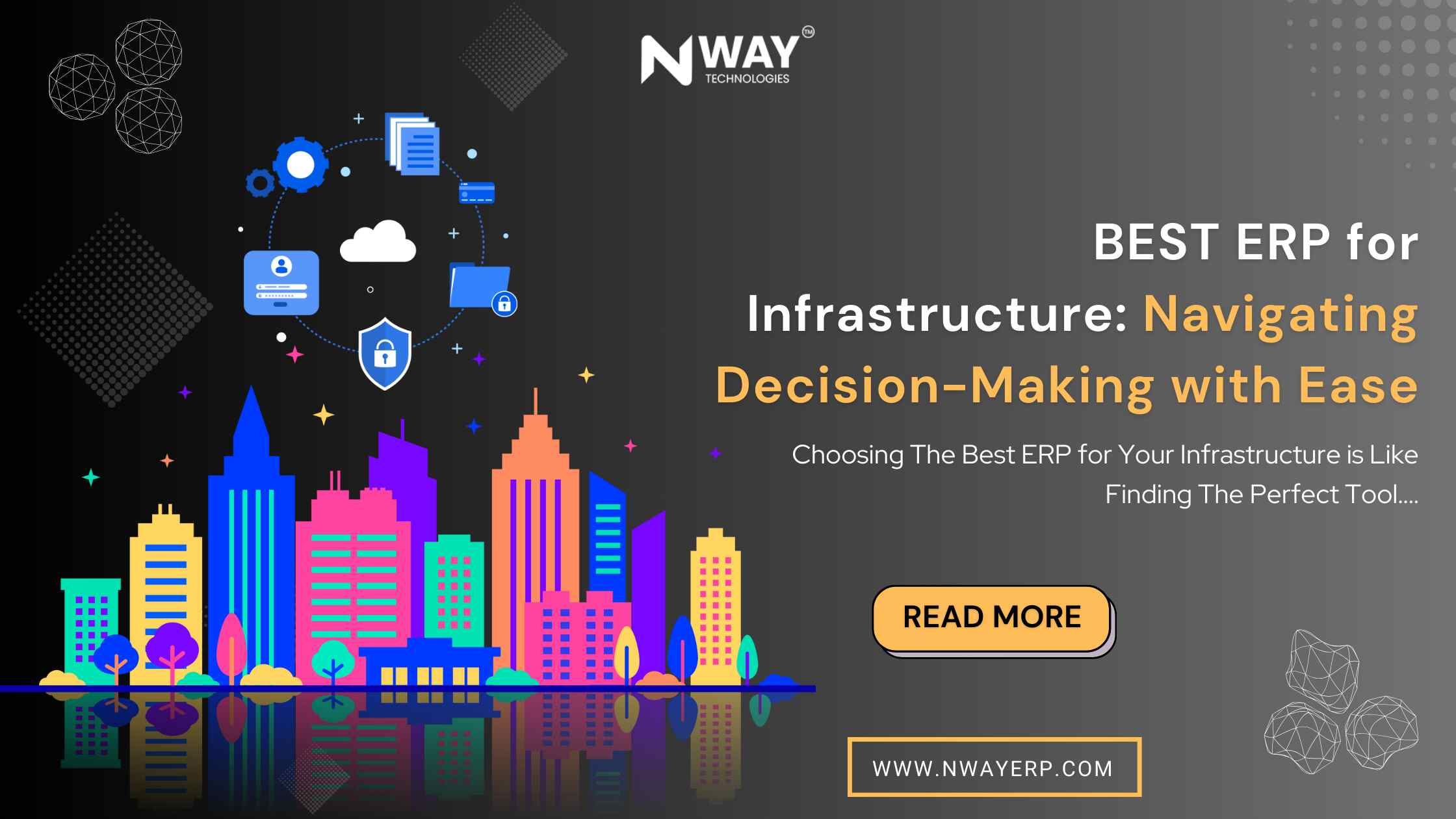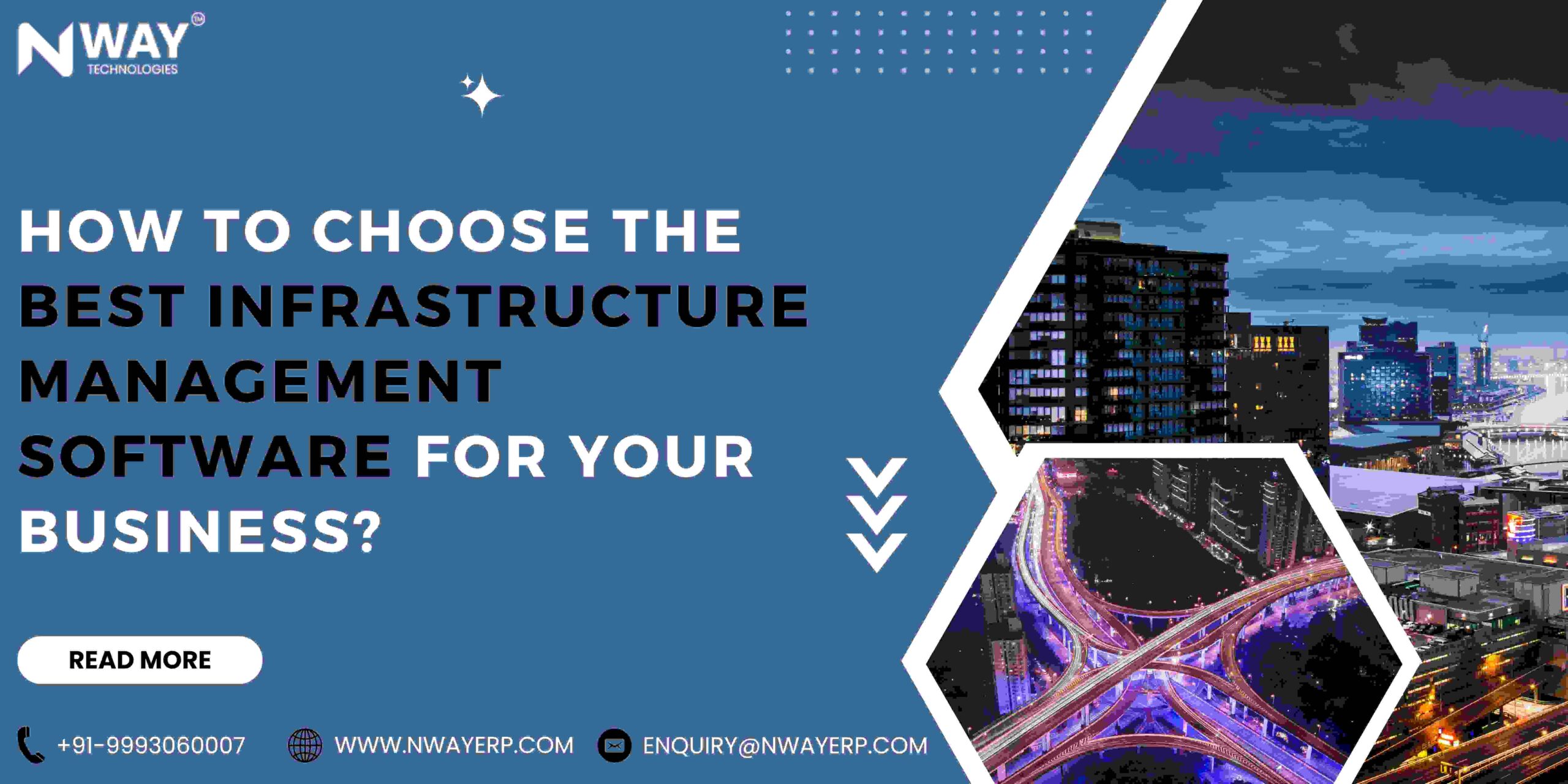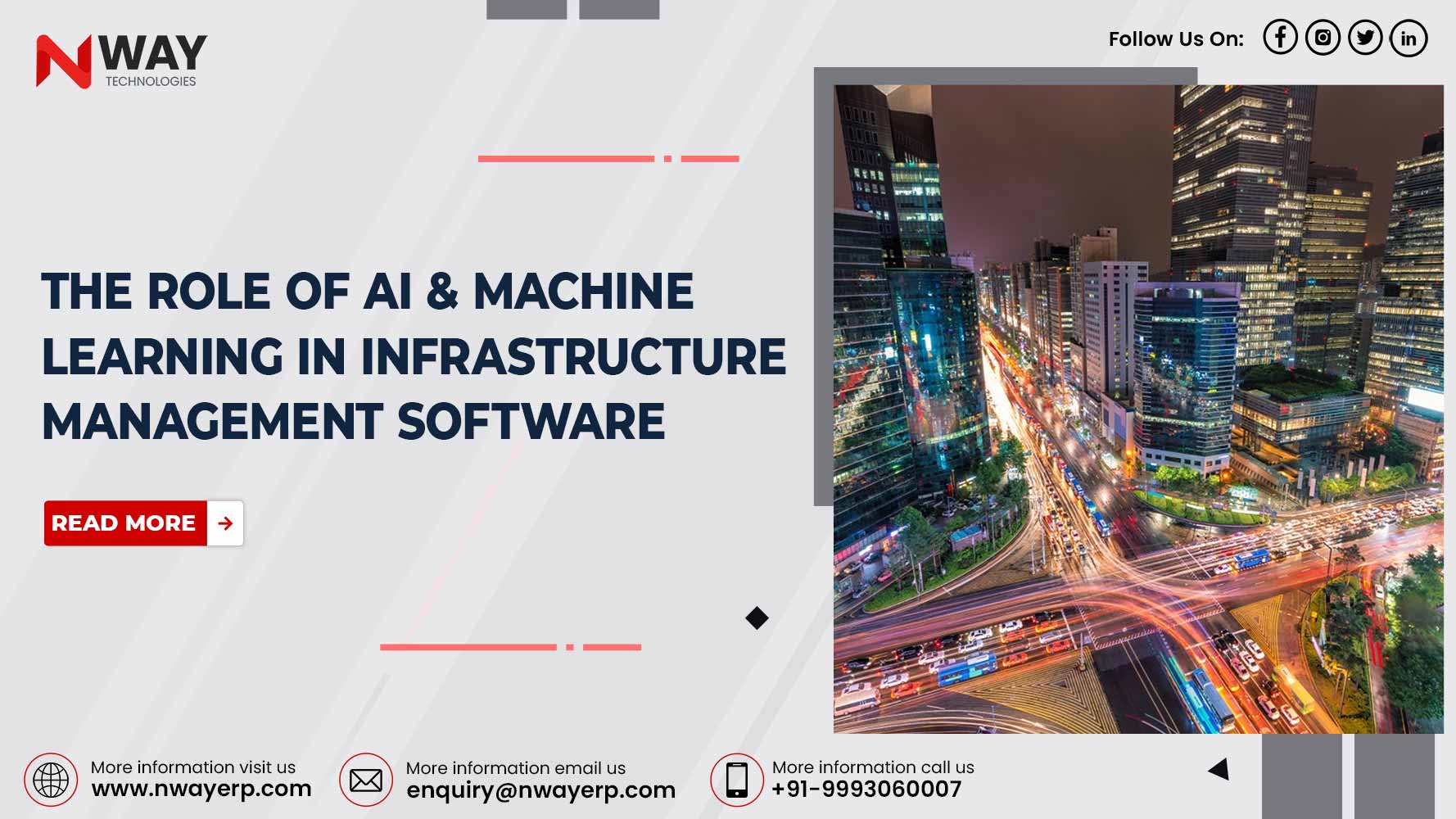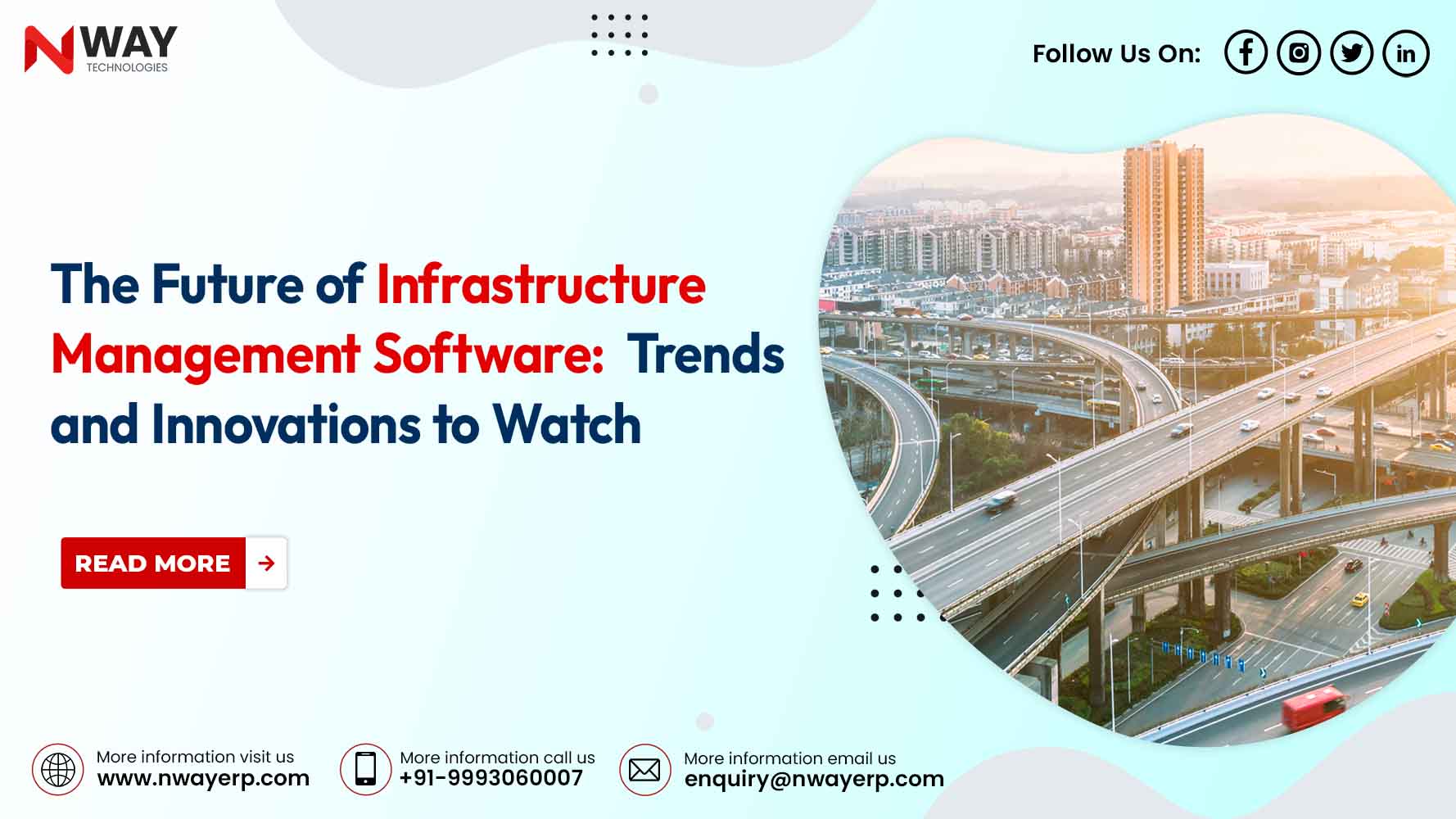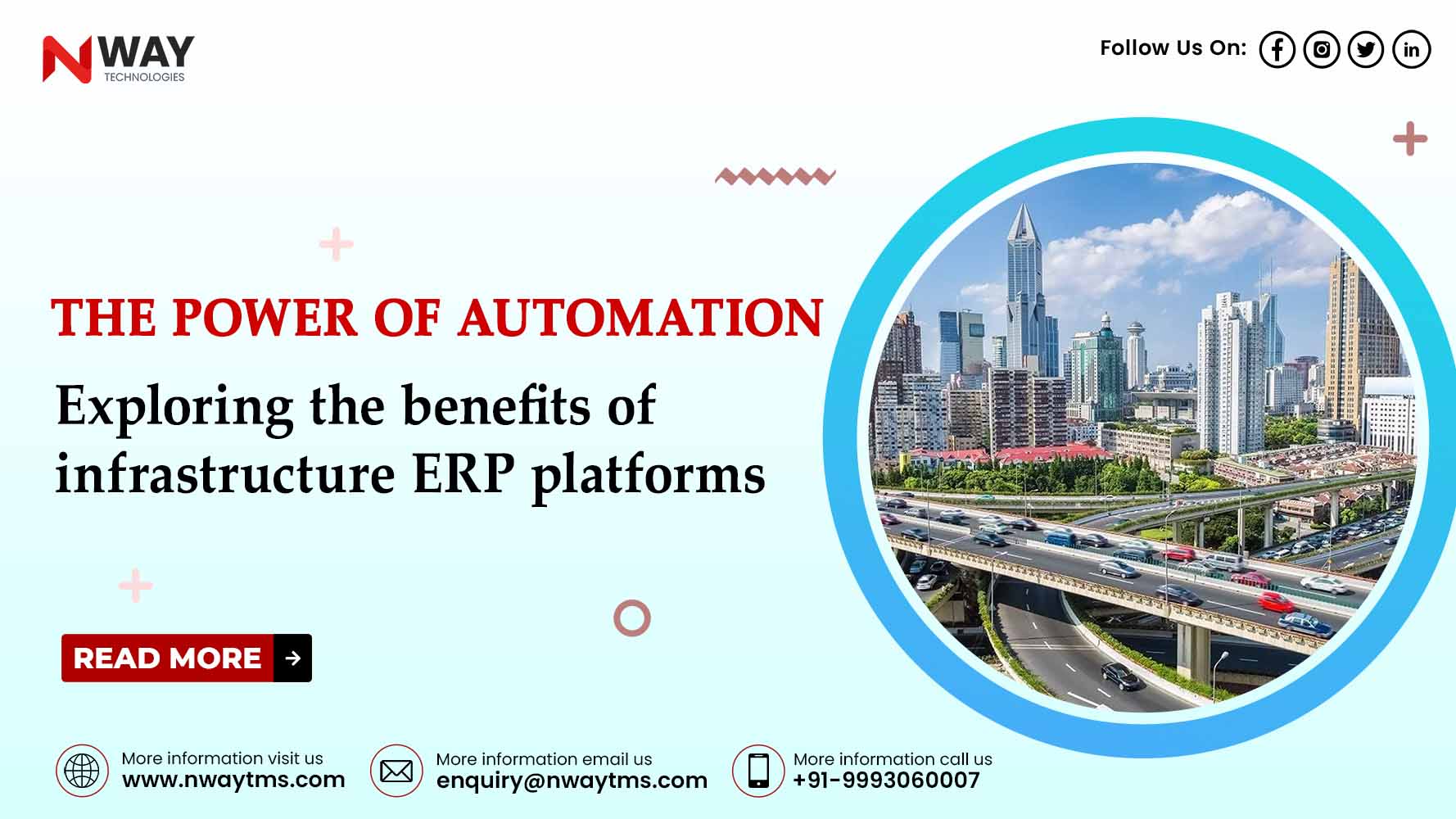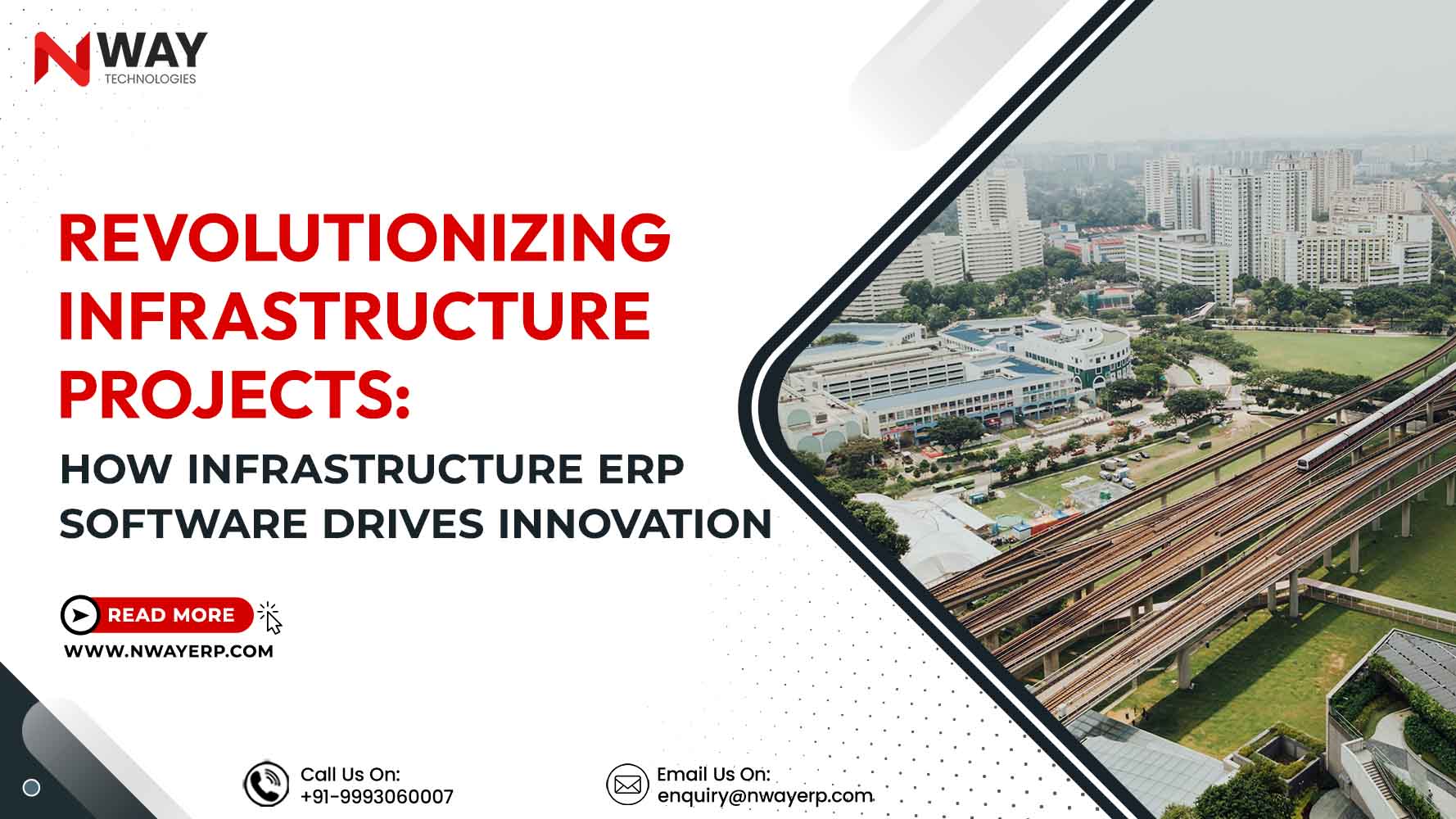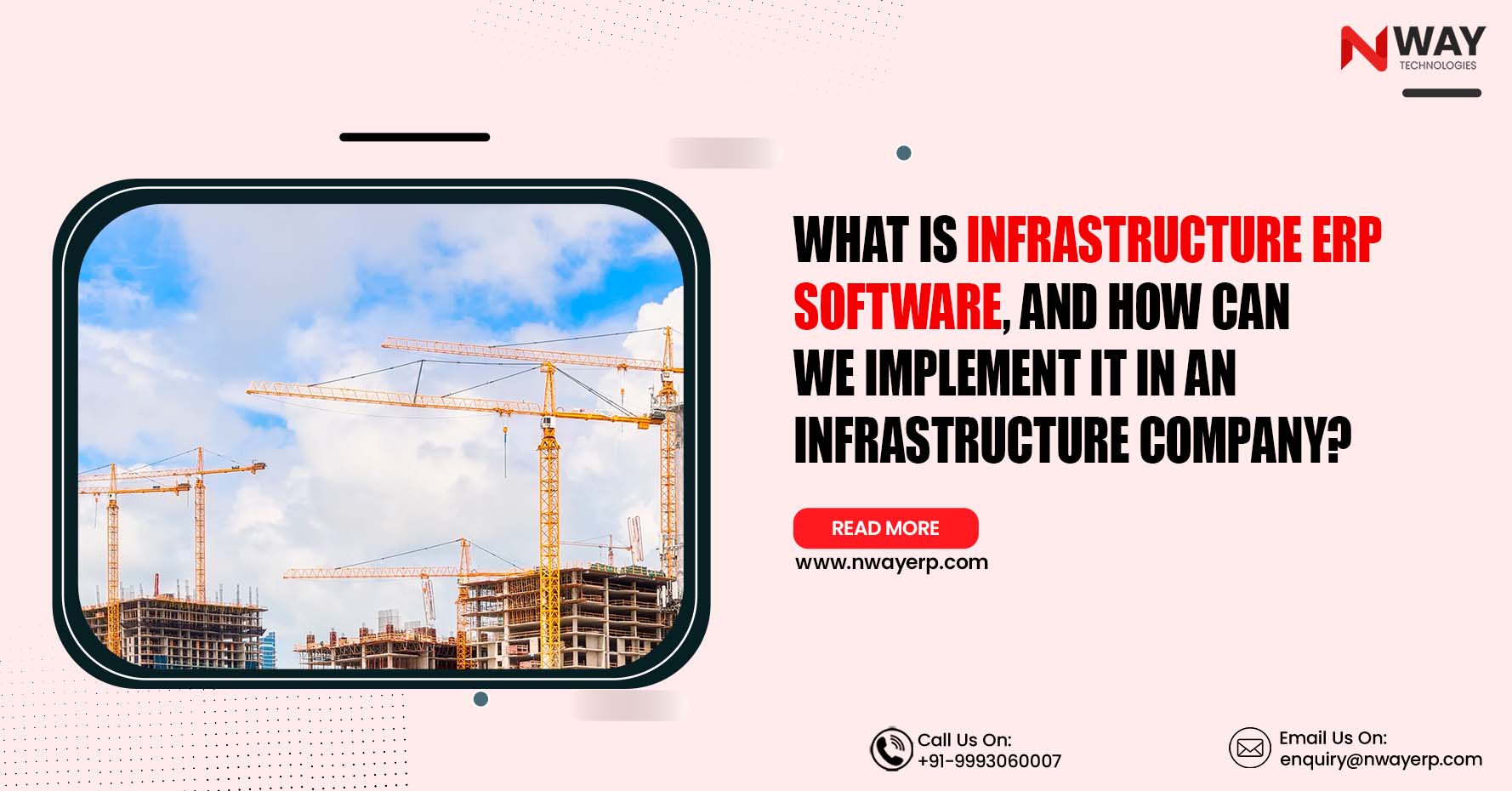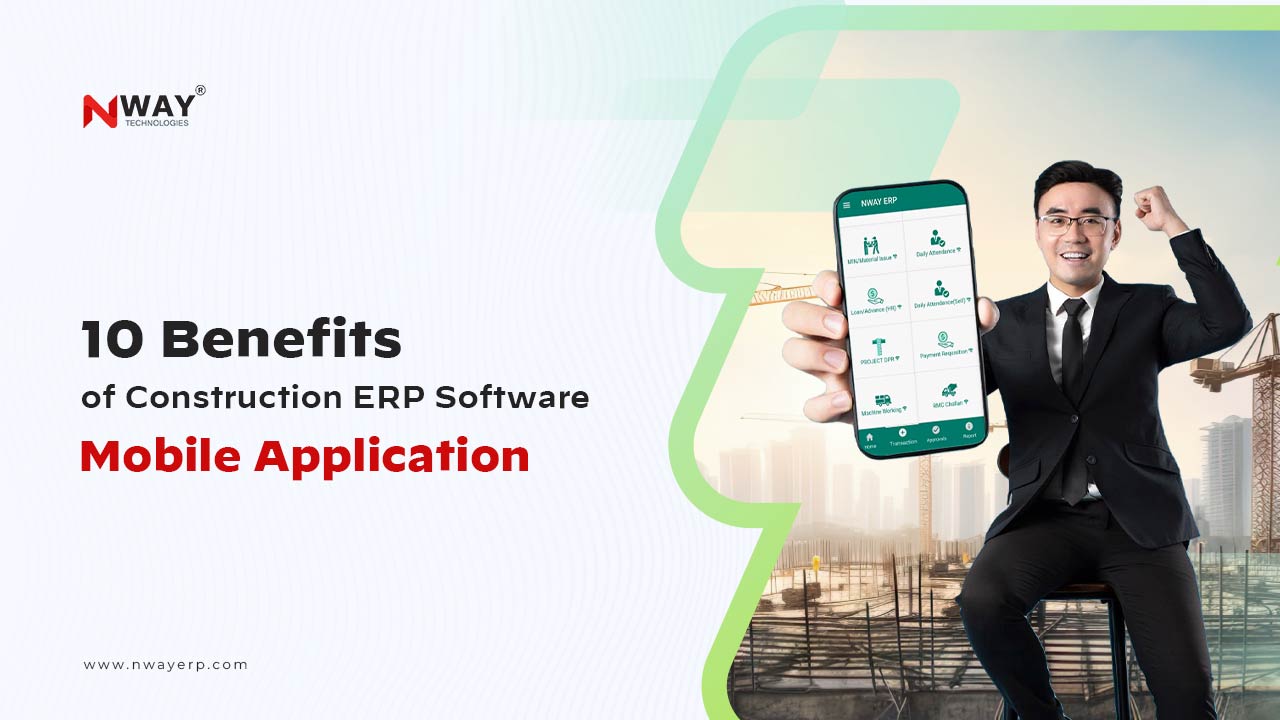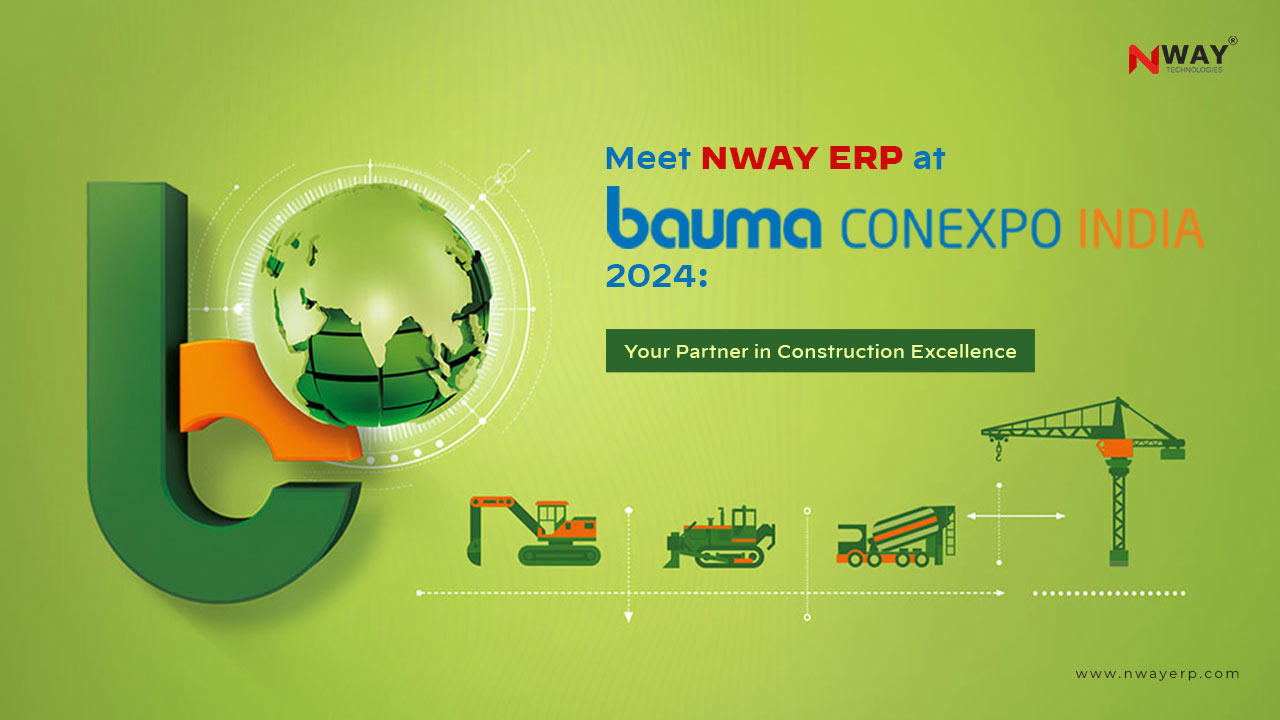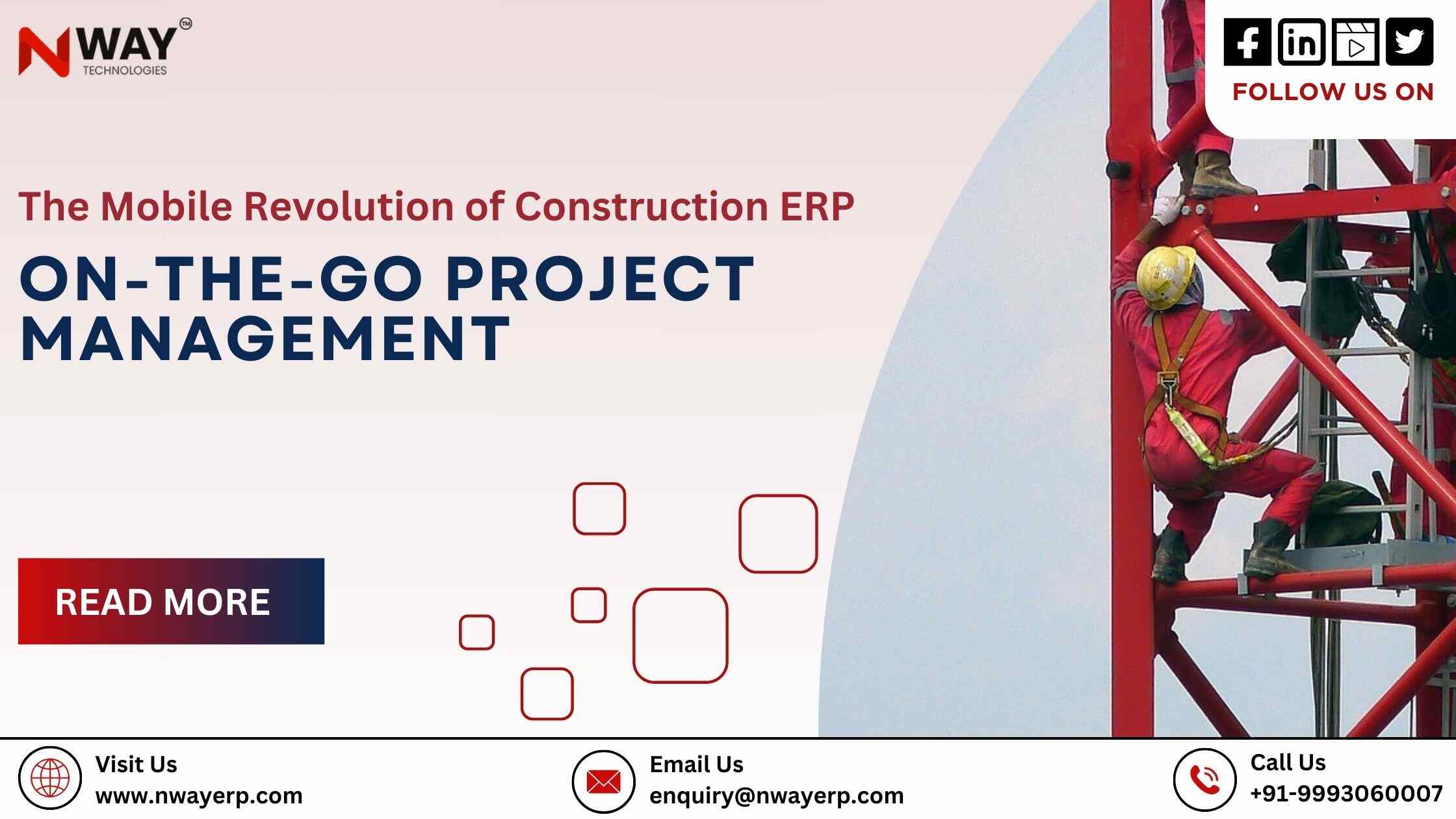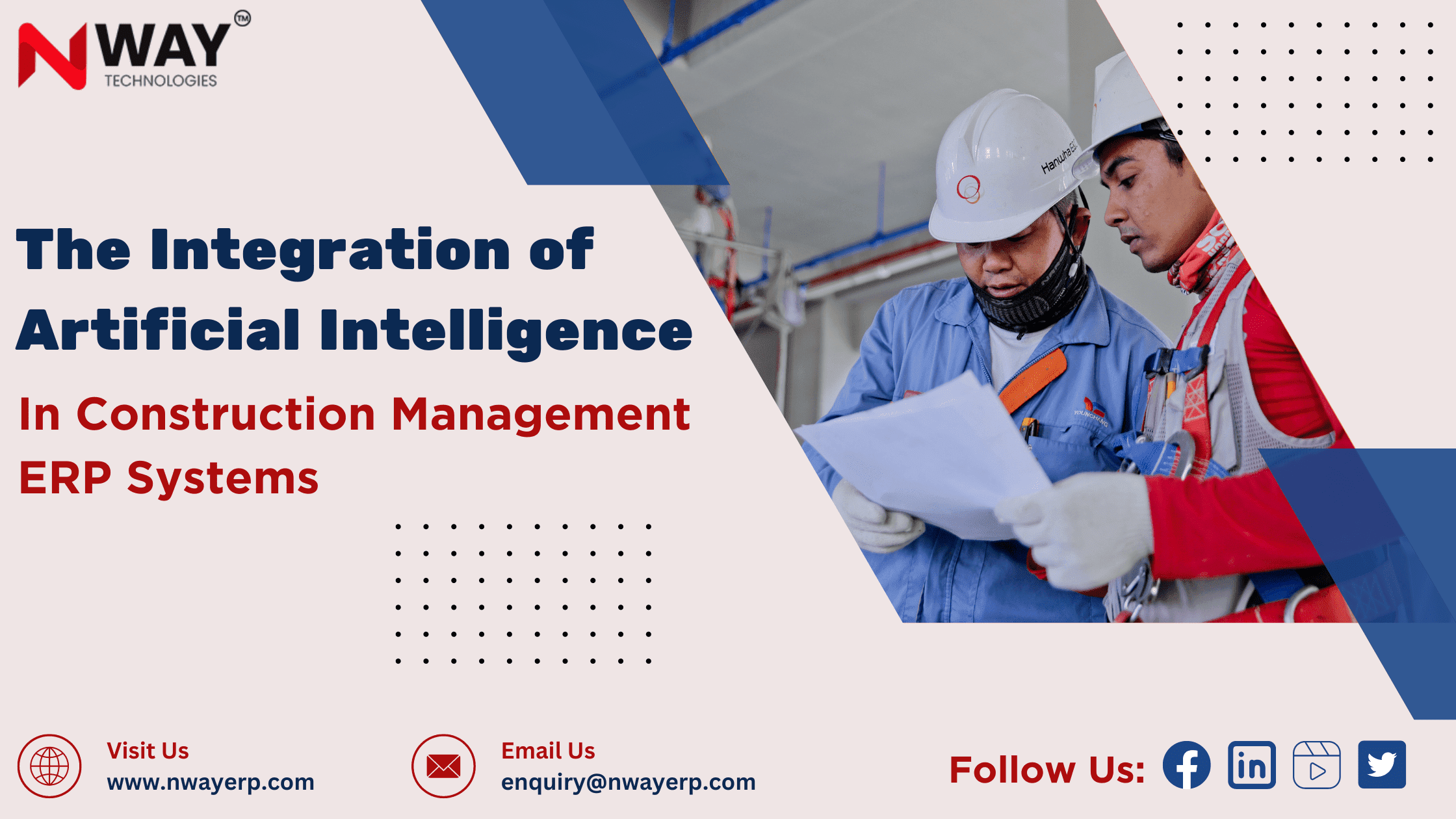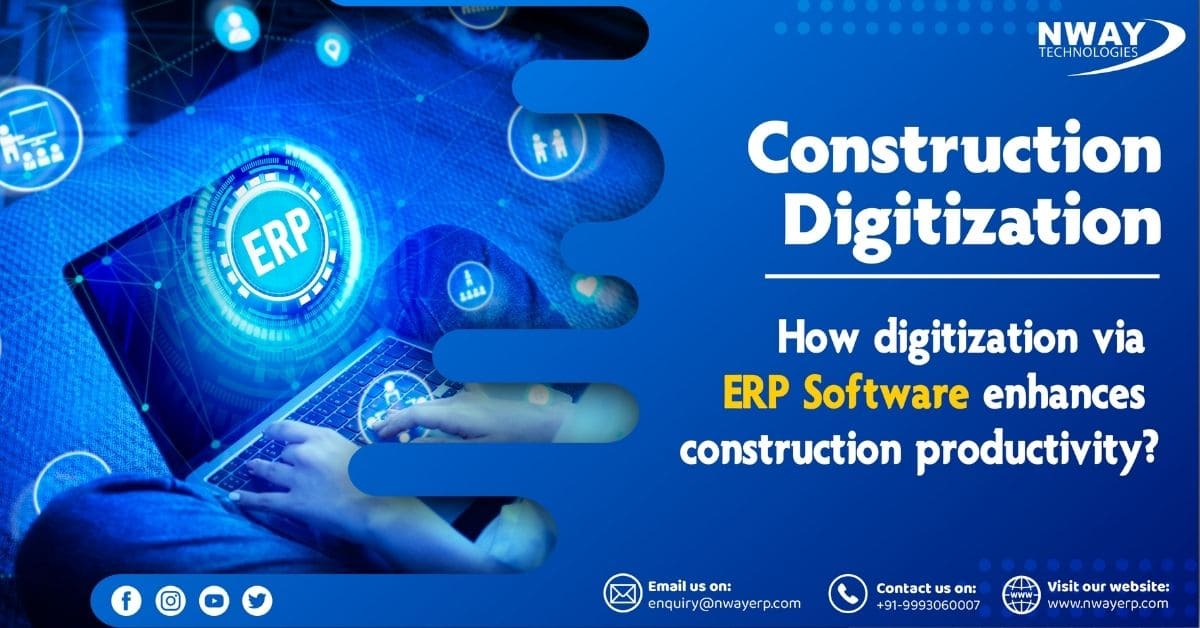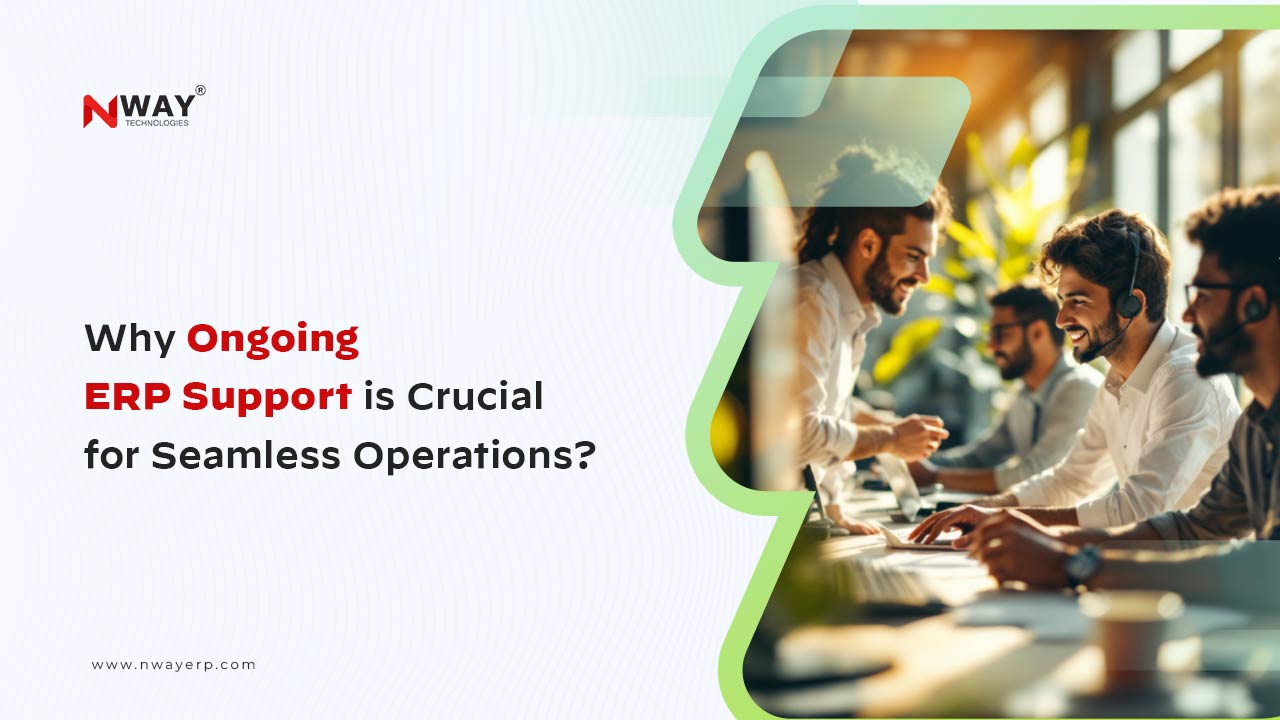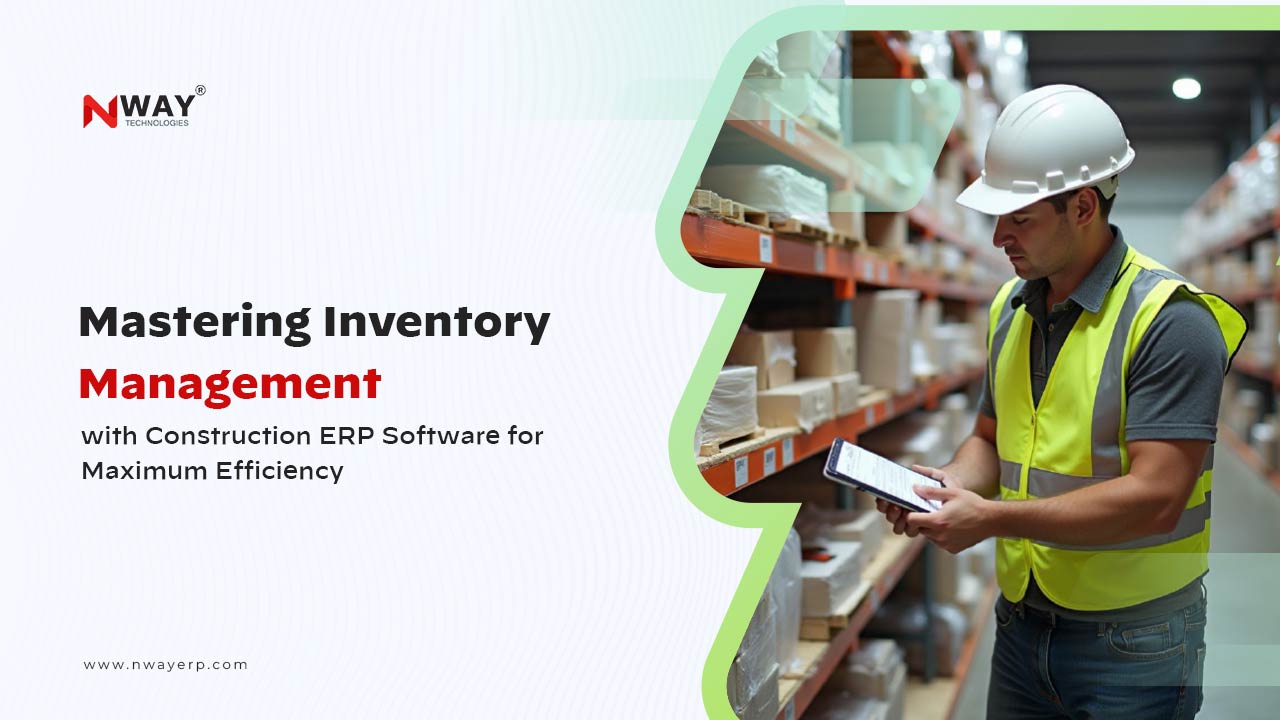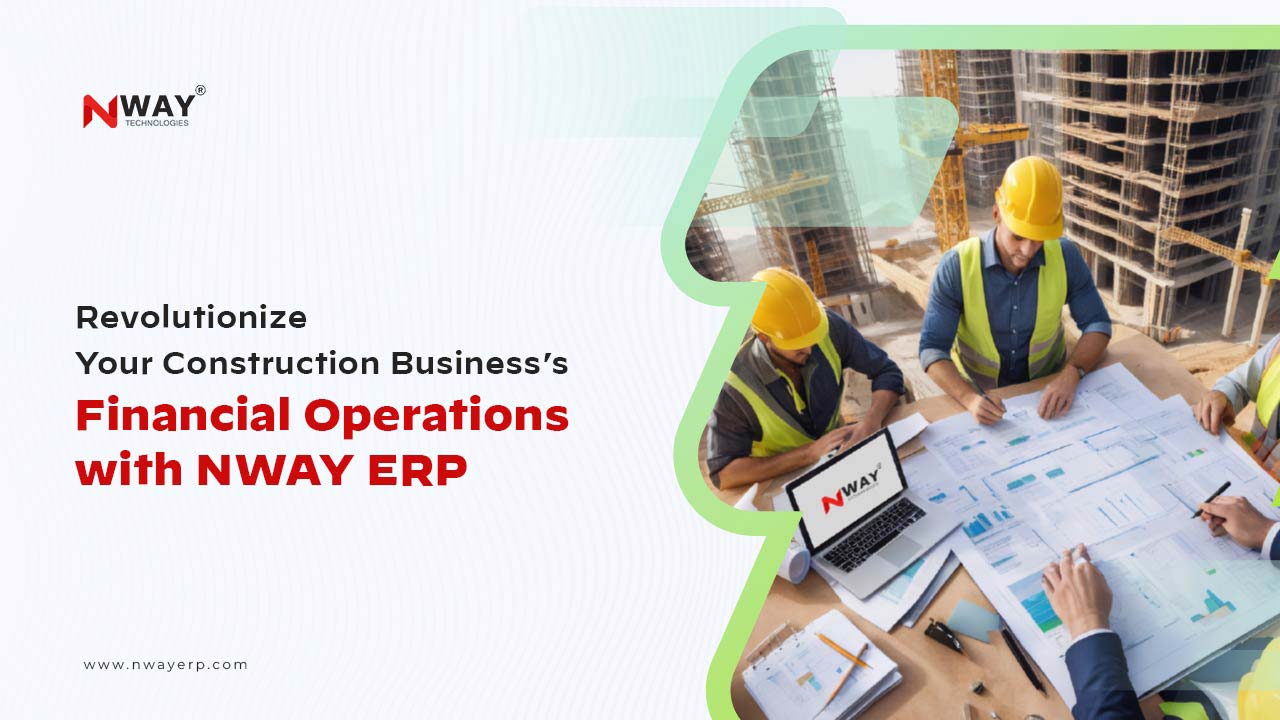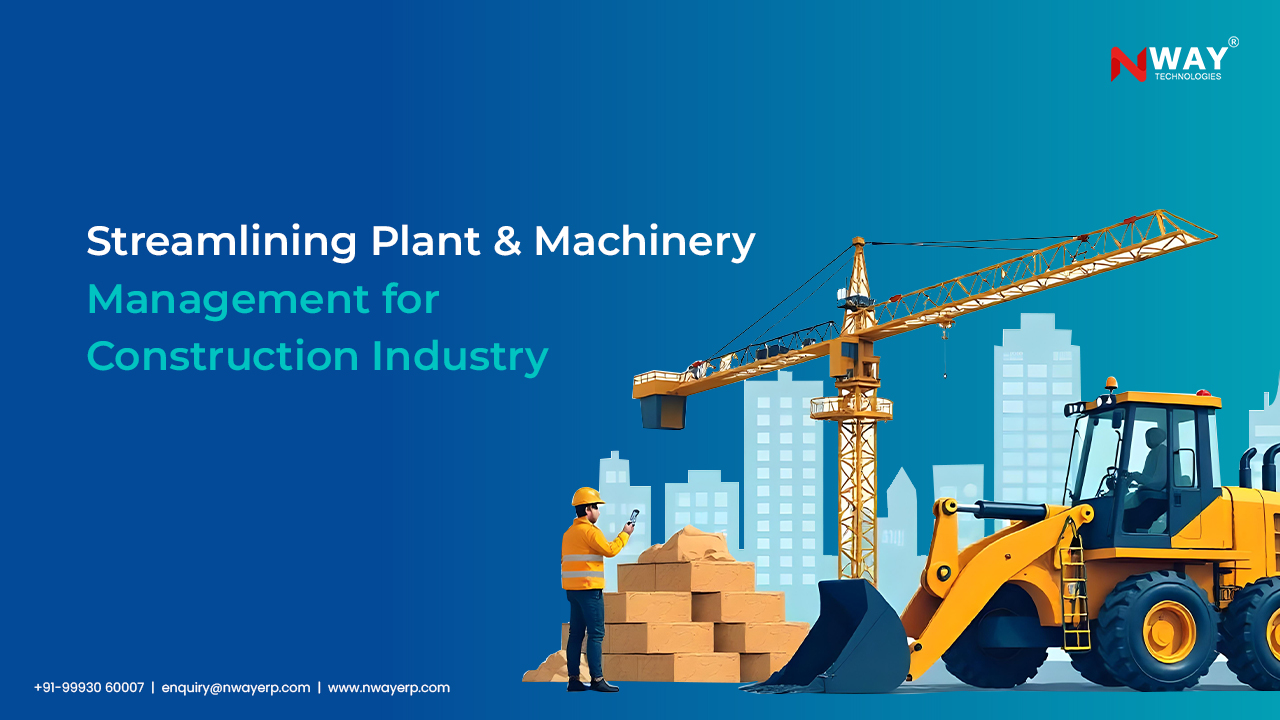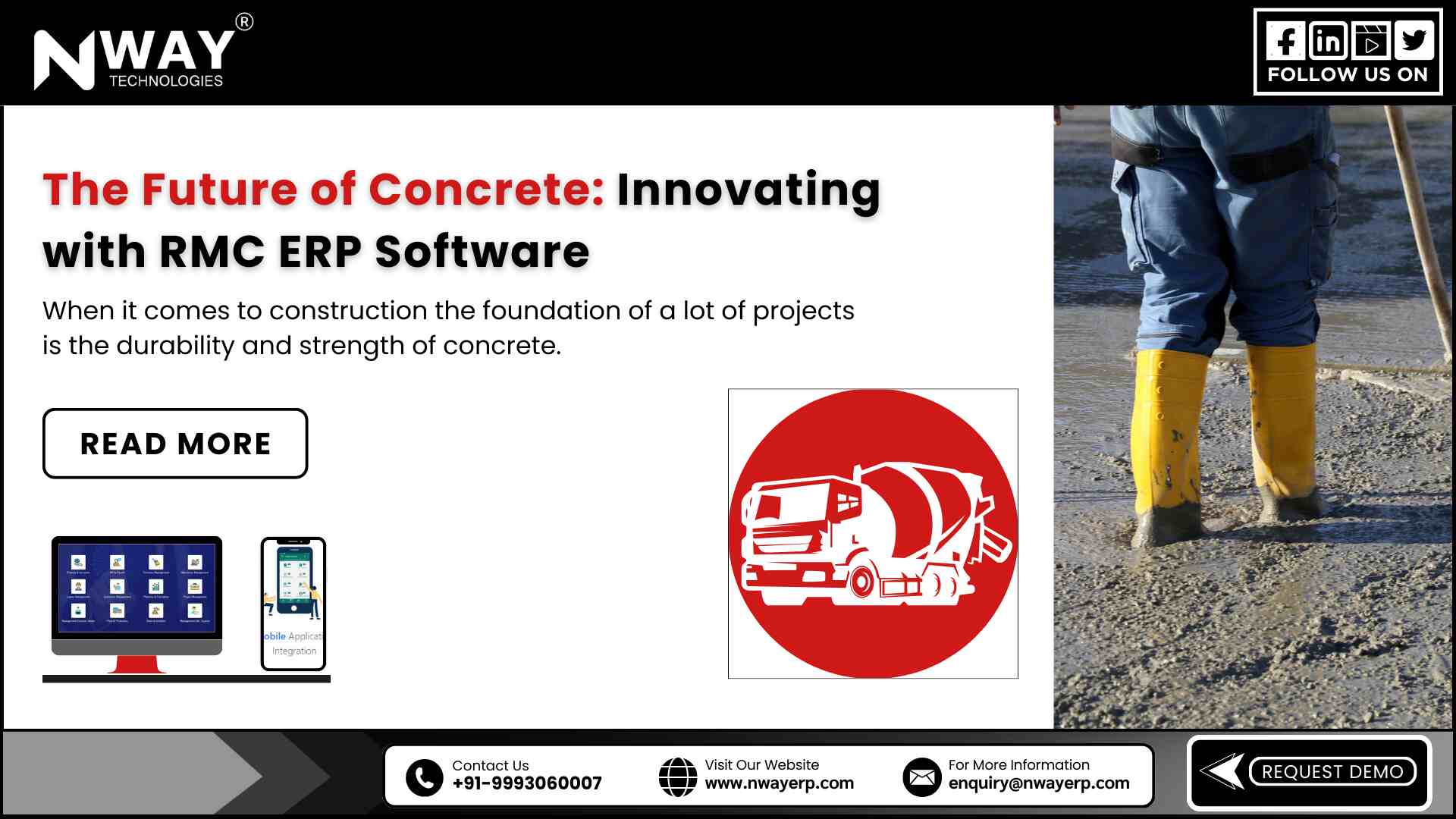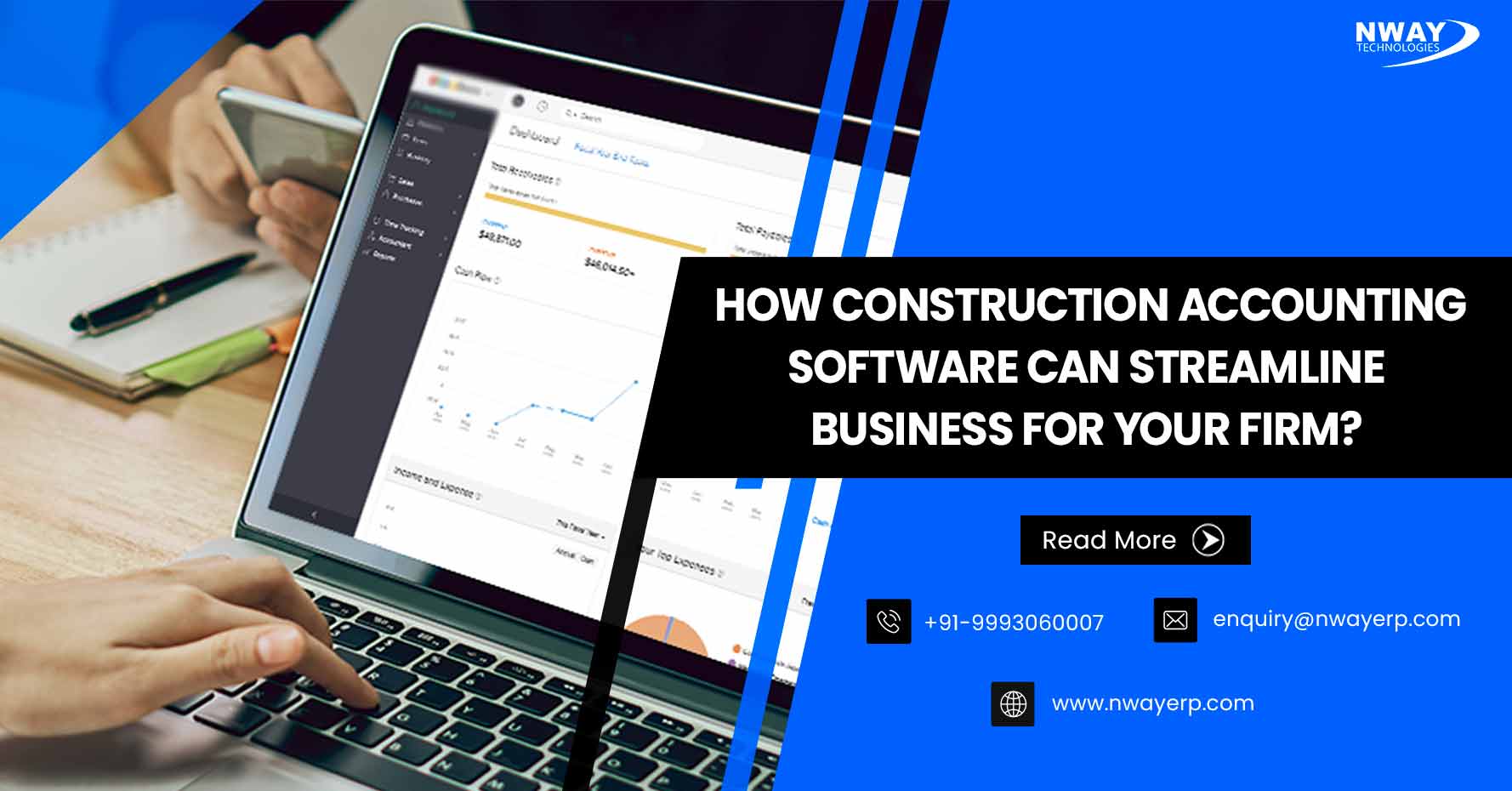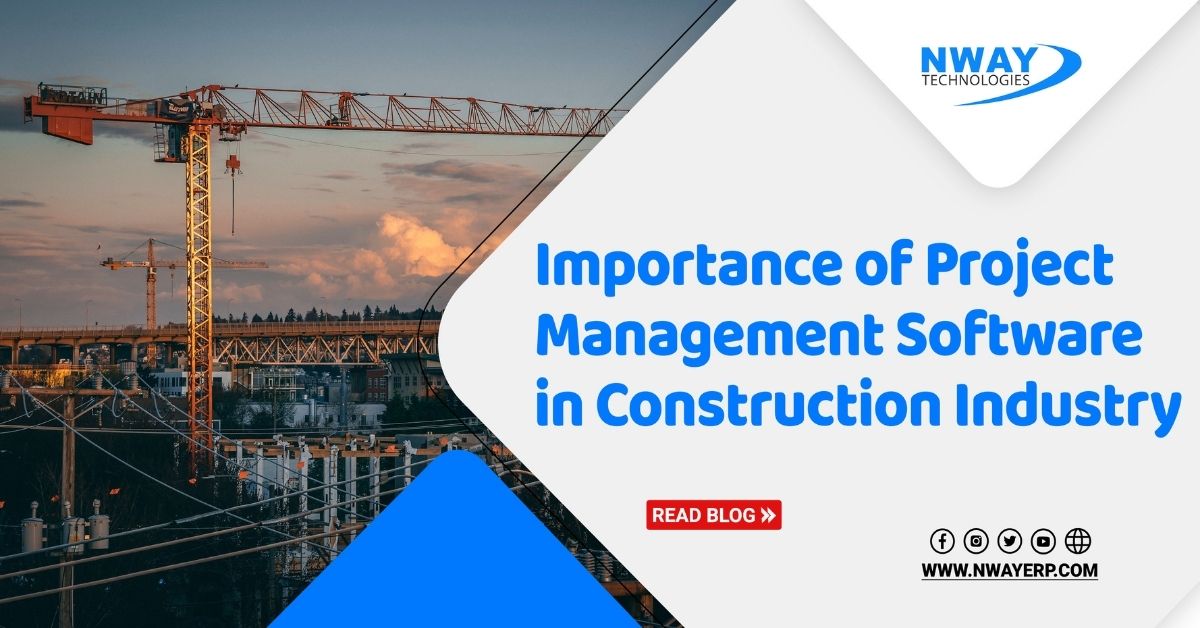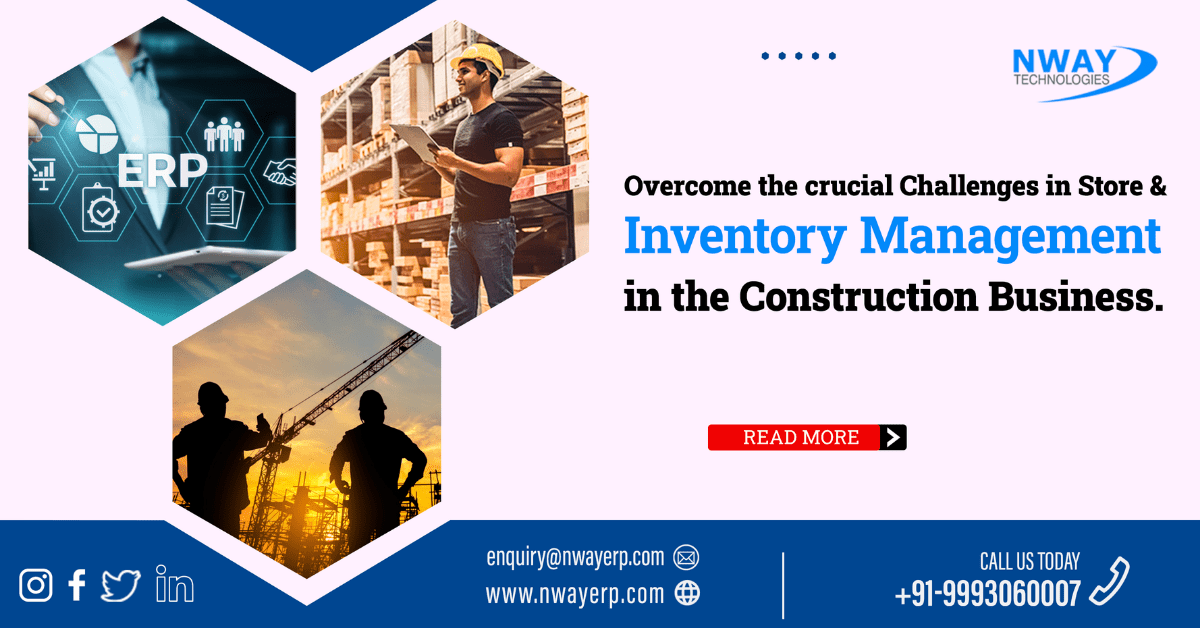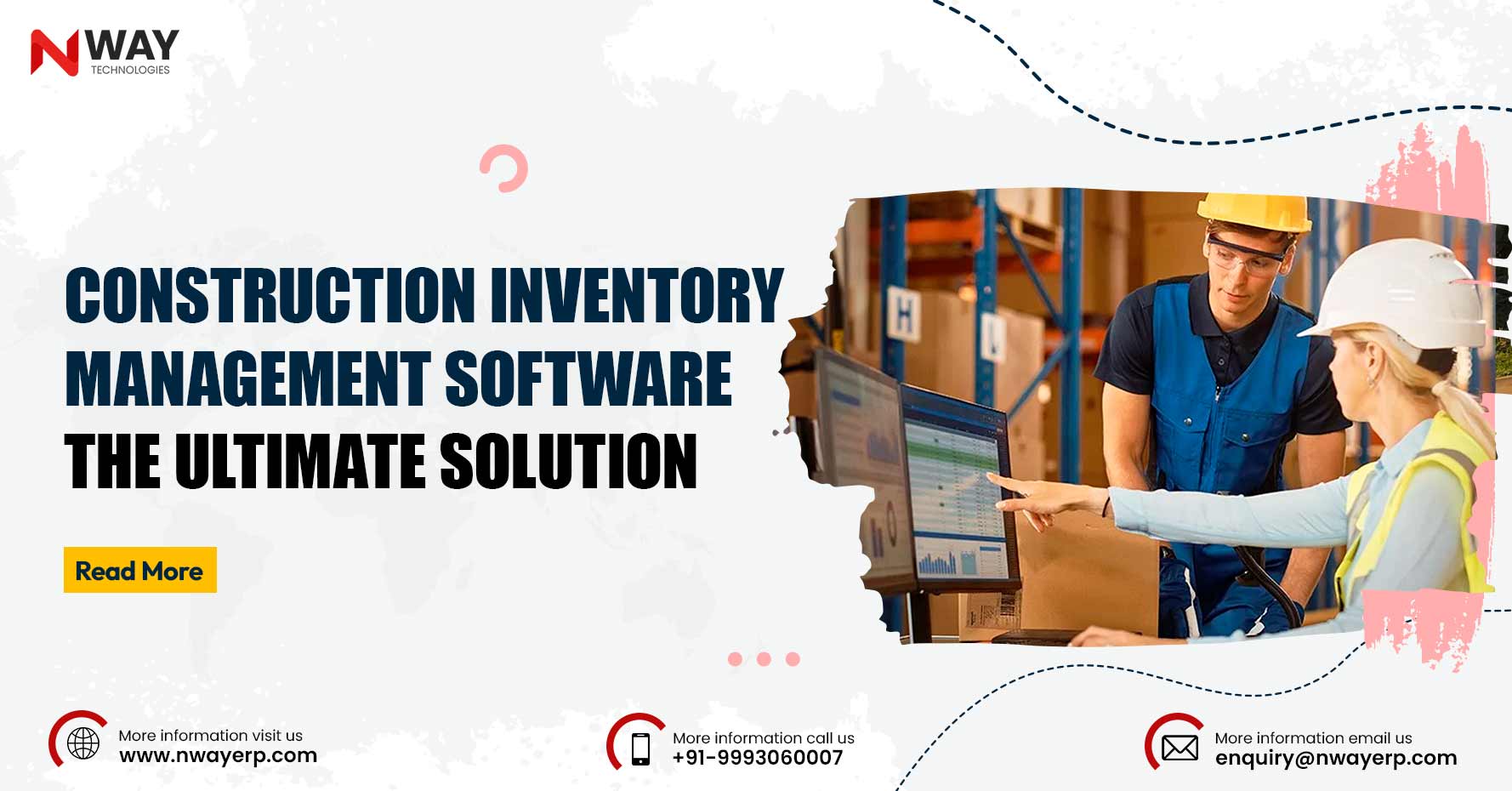Blogs
-
May 12 2021Concerns in Construction Industry Many construction businesses have reported the following difficulties they face, and what keeps them away from reaching a fruitful revenue. Poor Workforce Management Shipment Delays Bad Inventory Management Improper Reporting & Analysis Miscommunication Wastage of Resources Benefits of Construction Management ERP Software Implemented by NWAY Technologies: Contractor Management Construction ERP Software can boost performance according to the need of your organization with customization. Create a centralized database of all qualified contractors across the organization and monitor contractor project progress and efficiently assign/monitor tasks through automated notifications and insights. Planning & Estimation Be prepared for unforeseen changes by analysing previous reports to realizing the repetitive constraints. Mark your budget limits with timely alerts on exceeding limits. Ensures a project is achievable, measurable, specific, relevant and in the bound of time. Share the planning and ideas with customized groups in a centralized system making it a more Accountable and organized system. Project Management All sites centralized in one place, keeping track of all the task going on various sites eliminating pending culture in your organization leading towards a healthy project life cycle. Whatever department is, allot group task, and set timeline and budgets achieving bigger goals. Go as
-
Feb 27 2021What is ERP System? Enterprise Resource Planning (ERP) software is an application that automates major business processes, usually in real-time and moderated by software & technology. It combines financial management, supply chain, CRM, and in some cases, industry-specific solutions into one broad range by helping businesses earn full visibility and control, scale & able to compete in the competitive domain. Nway Construction ERP Software provides a full-fledged ERP system that caters to all your business needs & Streamlines your key processes, gains greater insight into your business, and makes decisions based on real-time information. What is Accounting Software? Accounting software describes a type of application software that records and processes accounting transactions within functional modules such as accounts payable, accounts receivable, journal, general ledger, payroll, and trial balance & timesheets. It can track financial transactions to record profile or loss and improve business finance and overall cash flow. The major difference between an ERP system and accounting software are below: Accounting Software provides limited real-time data whereas ERP handles the entire function of an organization ERP software consolidates every financial information in one database and accounting software handles individual business accounts. ERP systems eliminate the need for different tools to
-
Jan 20 2021ERP (Enterprise Resource Management) is an integrated process of gathering and organizing business data through a consolidated software suite. Construction ERP Software helps managers to design comprehensive and extensive plans for successful engineering of projects from the beginning of project work till the outcome and during the entire construction lifecycle. Construction Software has been customized in different sectors including sales, material management, tendering, purchase management, general contractors, and many else. ERP Software is an advanced technology software that combines all construction business processes like accounting, payroll, purchase management, inventory management etc in one database and takes care of all the business components by removing paperwork and making manpower more productive. ERP software for the construction industry maintains all the necessary data or information regarding projects, profitability, conversion and revenue generation. Below are the Key Benefits of ERP Software in the Construction Industry: Cost Estimation Implementation of Construction ERP software can reduce your technical costs and enhance workflow in an efficient way. ERP for the construction industry is really helpful in estimating the cost of the project to plan for future work. Construction companies work on a contract basis and before getting tender, they bid for their projects for better cost
-
Nov 03 2020Know everything about e-Invoice: The CBIC (Central Board of Indirect Taxes and Customs) has issued a notification that e-Invoicing is to be mandatorily accepted by all companies or suppliers with a turnover exceeding Rs 500 crore. Before the limit for preparing e-Invoice was 100 Crores. This new change in a system or law is the gateway for the digitization of business processes in India. The provisions will come into effect from 1st October 2020. The CBIC has modified the e-Invoice format by adding in 20 new fields and removing 13 pre-existing ones. Also, few alterations have been made to the character length in certain fields. What is e-Invoicing or Electronic-invoicing? Electronic invoicing (e-Invoicing) is the exchange of the electronically generated bills document between a supplier and a buyer and validated by the government tax portal. An e-Invoicing is the transaction processing system where B2B invoices are digitally prepared in an e-Invoicing format and authenticated by the GSTN. This system ensures that a common format is followed by all businesses before reporting invoices to the GST portal. What are the documents covered for e-Invoicing? The taxpayers need to be reported the following documents to the government under e-Invoicing regulation: Invoice by
-
Oct 27 2020Today, the construction industry has become more challenging and competitive. All construction firms are in search of any means to boost productivity, accomplish integration, and stain competitiveness. Enterprise Resource Planning (ERP) system is an Information Technology (IT) business solution that enables construction companies and their contractors to manage capital projects effectively and efficiently throughout the project lifecycle. Enterprise Resource Planning can allow companies to enhance their business processes and allows for necessary management. That’s why ERP can be said a business management system software that can integrate numeral activities in a project & deliver a simultaneous result for bettering performance, reducing cost, and increasing profits. Construction ERP software provides cost optimization, incorporates design changes, consistent quality conformance, Reliable, Faster, and on-time delivery, incorporates value engineering, a Collaborative work environment, and a team tracking facility. When evaluating your potential solution, you will need to understand how the functions will integrate and benefit you but there are 3 core elements that you must ensure are provided. Features for Construction Management: Procurement and controls Accounting Specialized Cost Ledgers Payroll and Labor Costing Plant and Equipment Costing Contract Cost Reporting Business Intelligence Document Management Time and Attendance Systems Human Resource Management Enterprise Accounting Top
-
May 25 2020Tax Deduction at Source (TDS) & Tax Collection at Source (TCS) To ease financial strain during the COVID-19 pandemic, the Central Board of Direct Taxes (CBDT) announced a 25% reduction in Tax Deducted at Source (TDS) and Tax Collected at Source (TCS) rates. This reduction was effective from 15 May 2020 to 31 March 2021, aiming to boost liquidity for businesses and individuals. How NWAY ERP can Help Simplify Your Processes? Simplify compliance with NWAY ERP. It also helps with updates and integrates these reduced tax rates into your system. This also helps manage seamless applications to relevant transactions, helping you focus on managing your business while staying compliant. Staying Compliant with Tax Changes can be Complex, but NWAY ERP Makes it Effortless. Our System: Automatically updates and integrates reduced TDS and TCS rates. Ensures accurate calculations for all relevant transactions. It provides real-time tracking and reporting for streamlining compliance. Reduces manual effort, saving you time, money, and resources. With NWAY ERP, you can focus on growing your business while we handle tax compliance.
-
May 22 2020CPM (Construction Project Management) is the activity of managing construction projects. But when it comes to managing a construction project in contrast to other types of projects, the distinction is mostly that construction is target-based and manages resources over the life cycle. Apply various tools and methodologies to control scope, cost, time, quality, etc. CPM (Construction Project Management) is required for simple home building to large complex bridge construction, from engineering a dam build to a road project. Contractors manage the complete process cycle of a project build, often managing on-site to ensure safe, successful construction. Different process in Construction Construction Project Management Tools You need the right tool to manage construction Projects successfully. Nway ERP provides construction project planning, estimating, scheduling, vendor management, procurement & cost management in construction projects, and tons of features to work more effectively & efficiently. When you work with interactive construction ERP solution like NwayERP.com construction project management become much easier. It provides you with a platform on which you can collaborate and provide a platform to your team and the tracking process become easier. NWAYERP has a construction management solution that has the following features. Cloud-Based Gantt Chart BOQ Material Consumed Daily Progress

